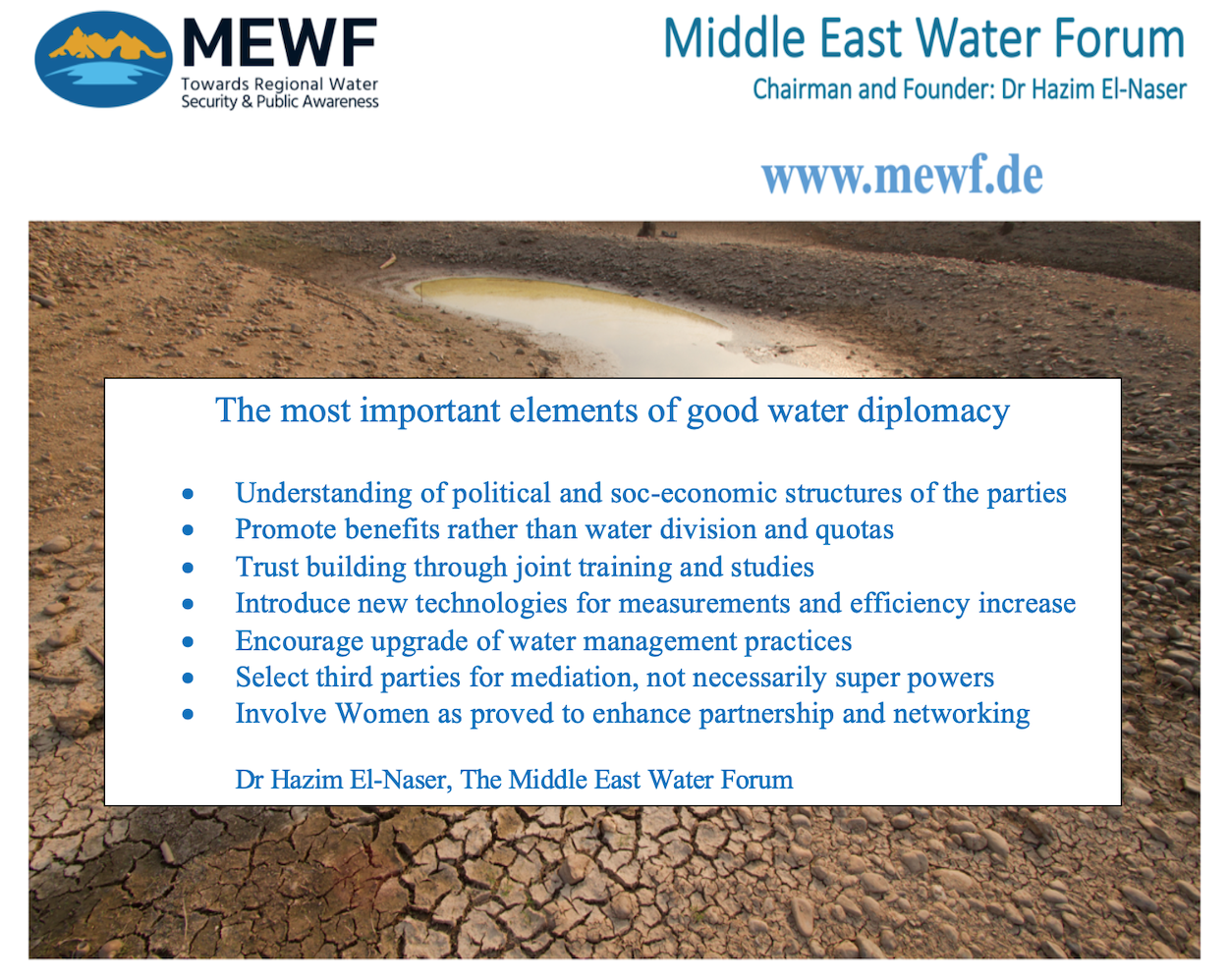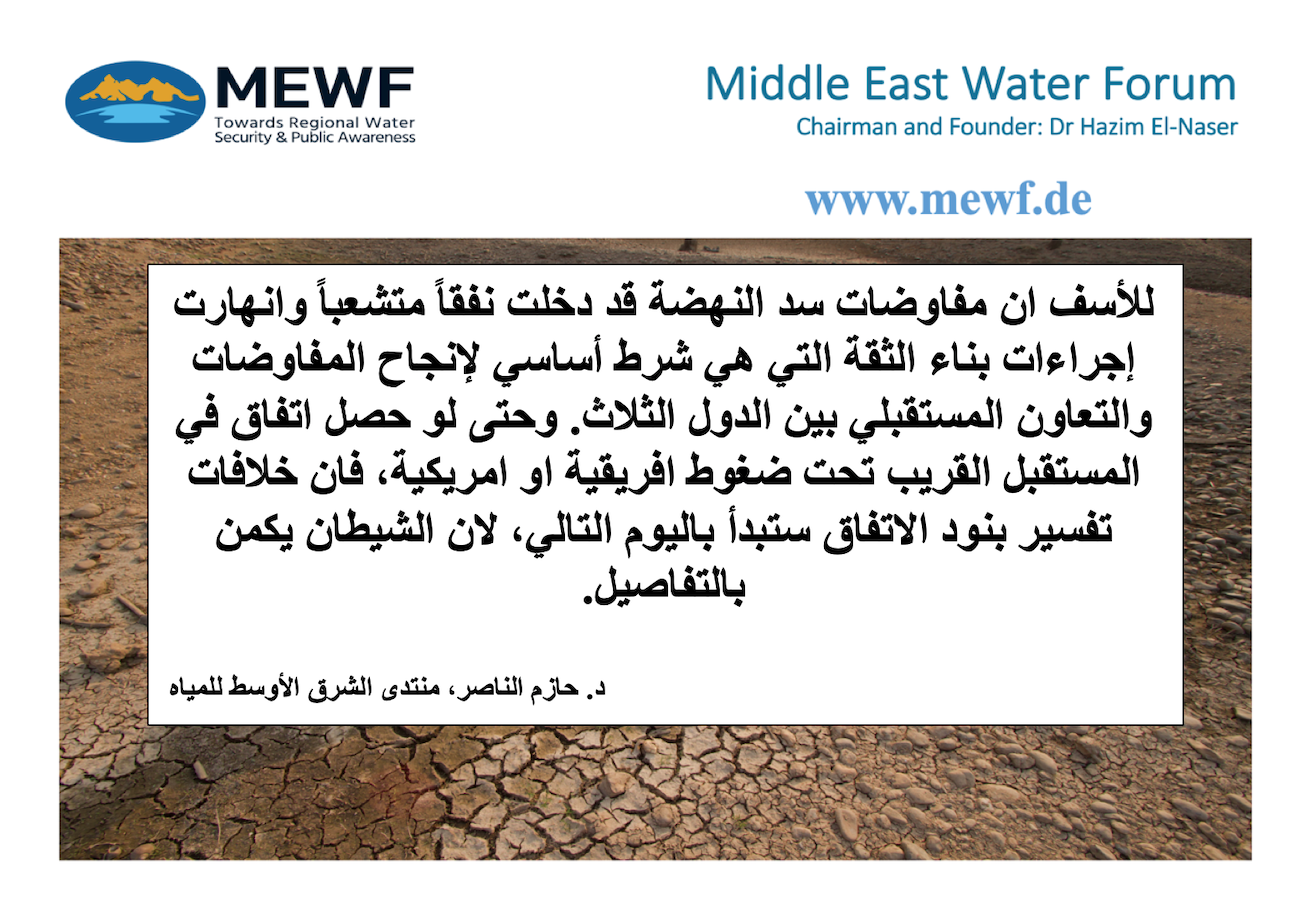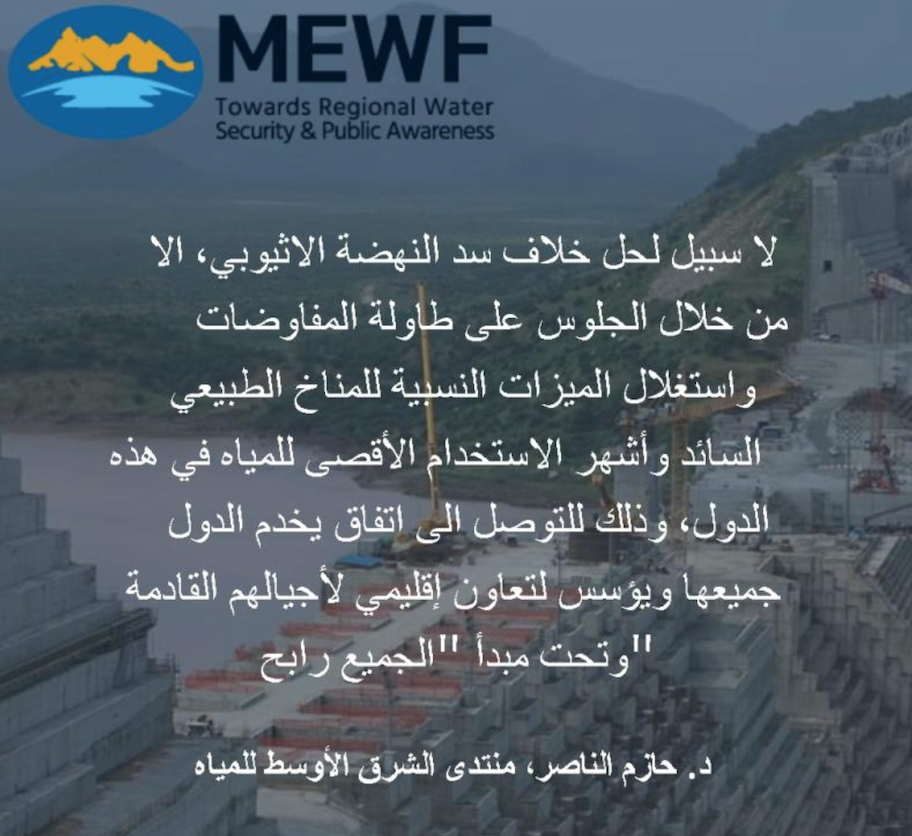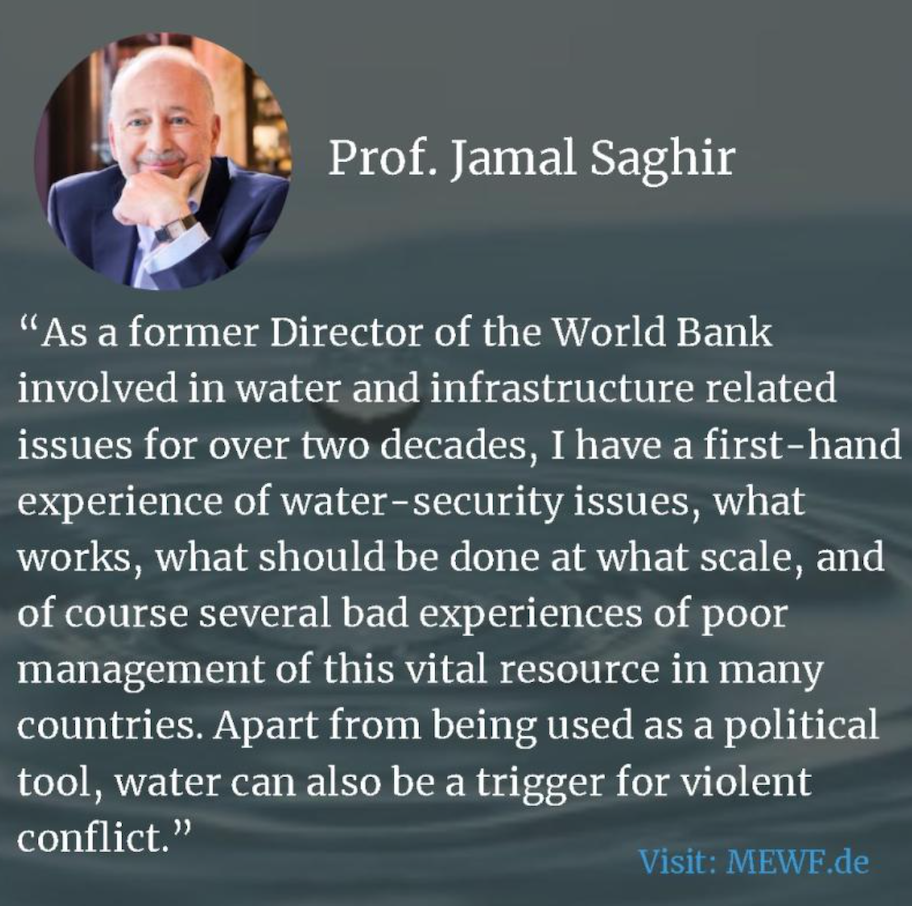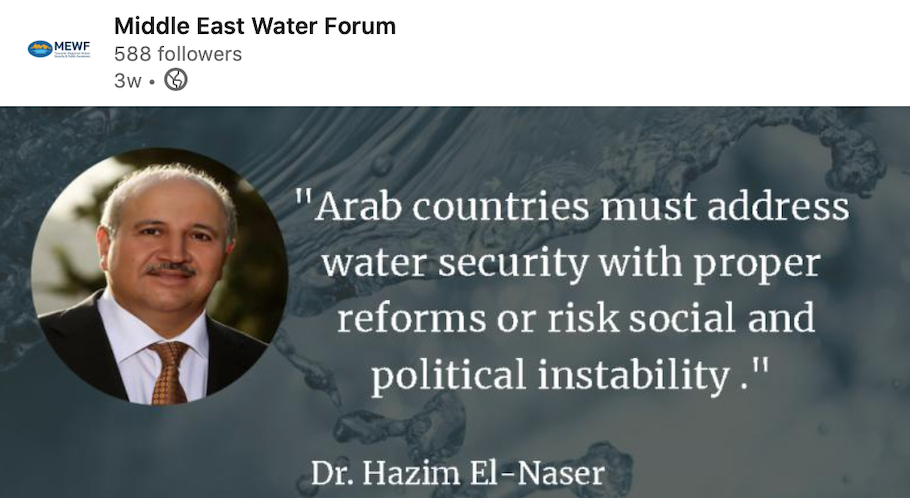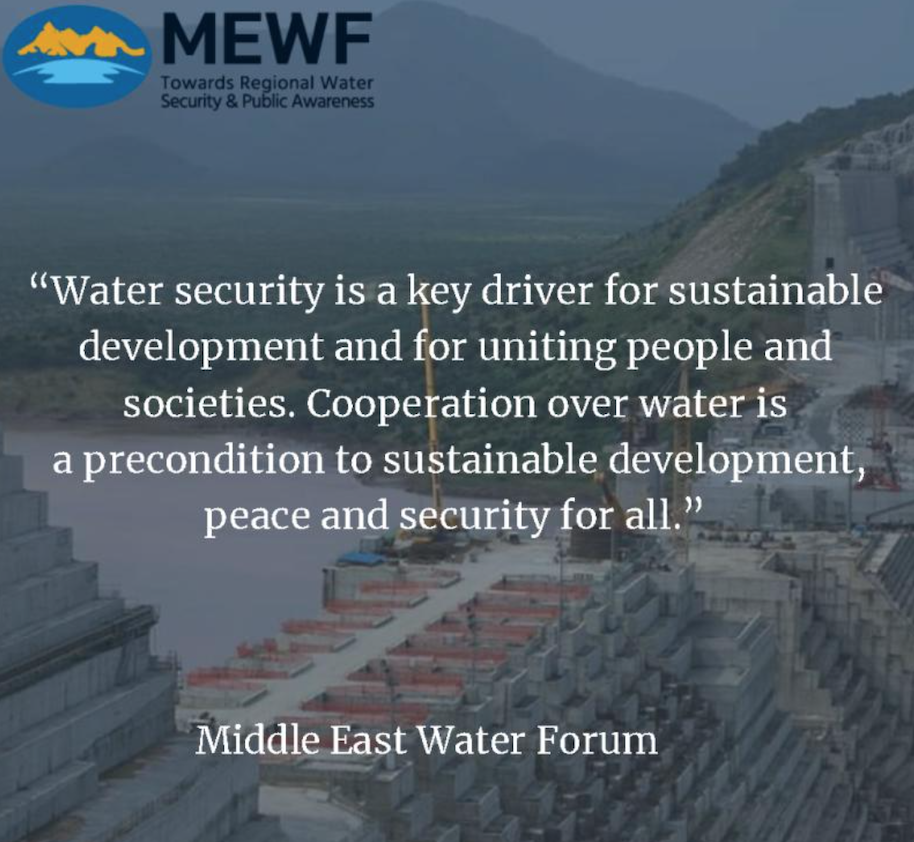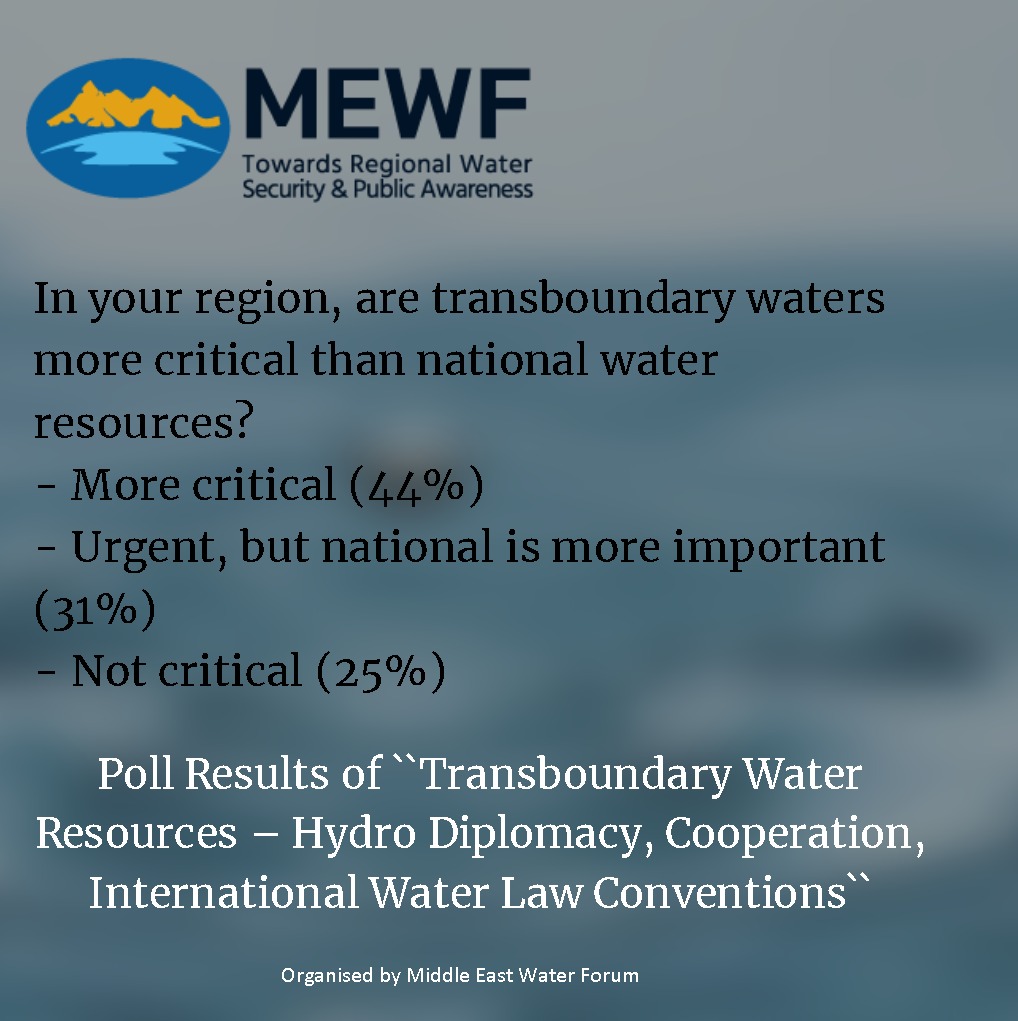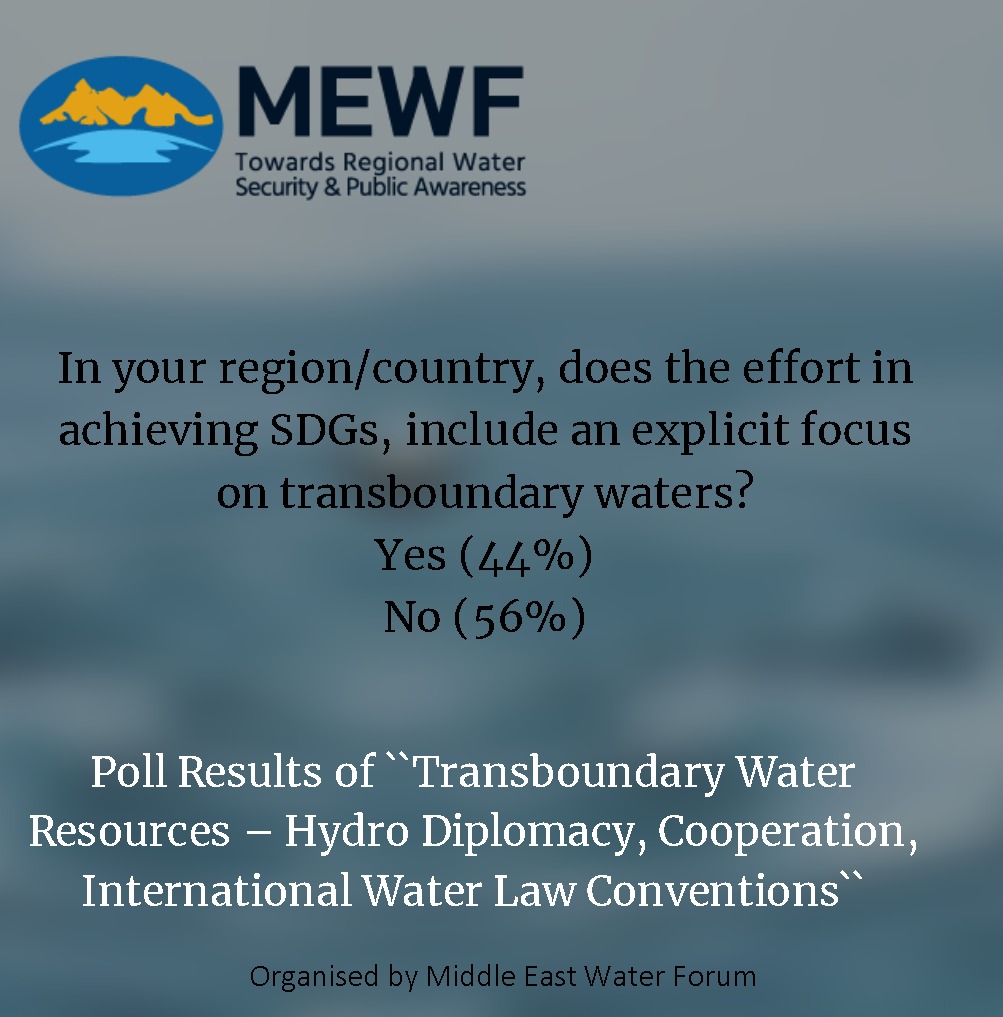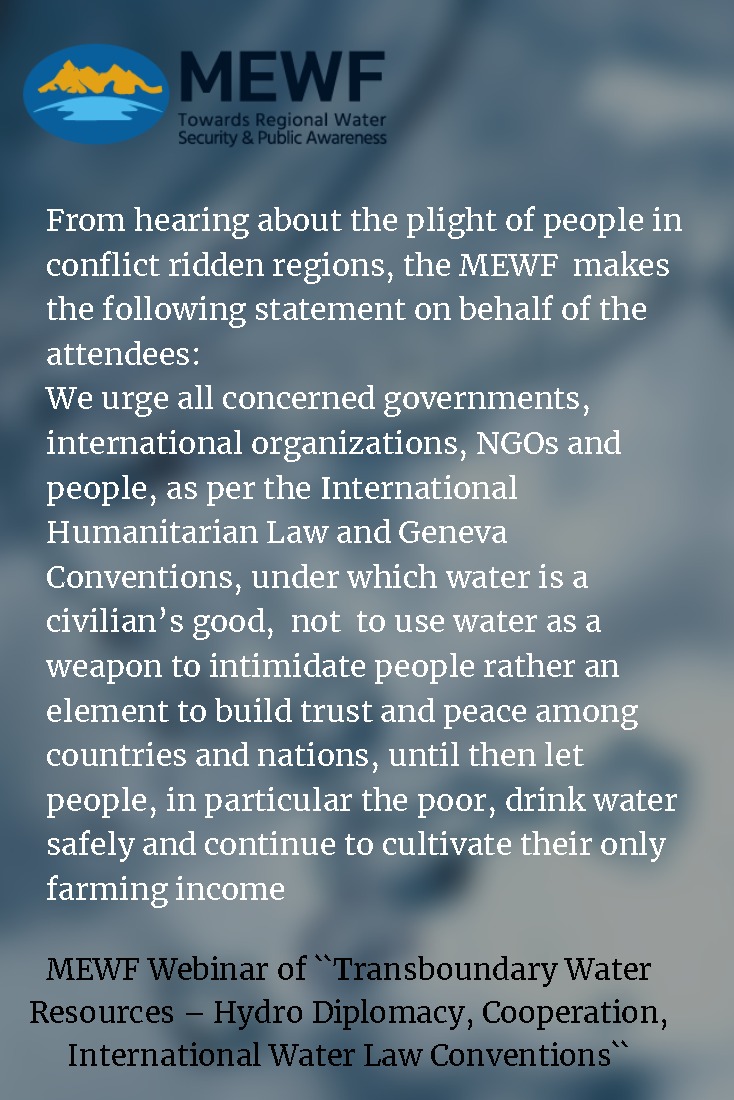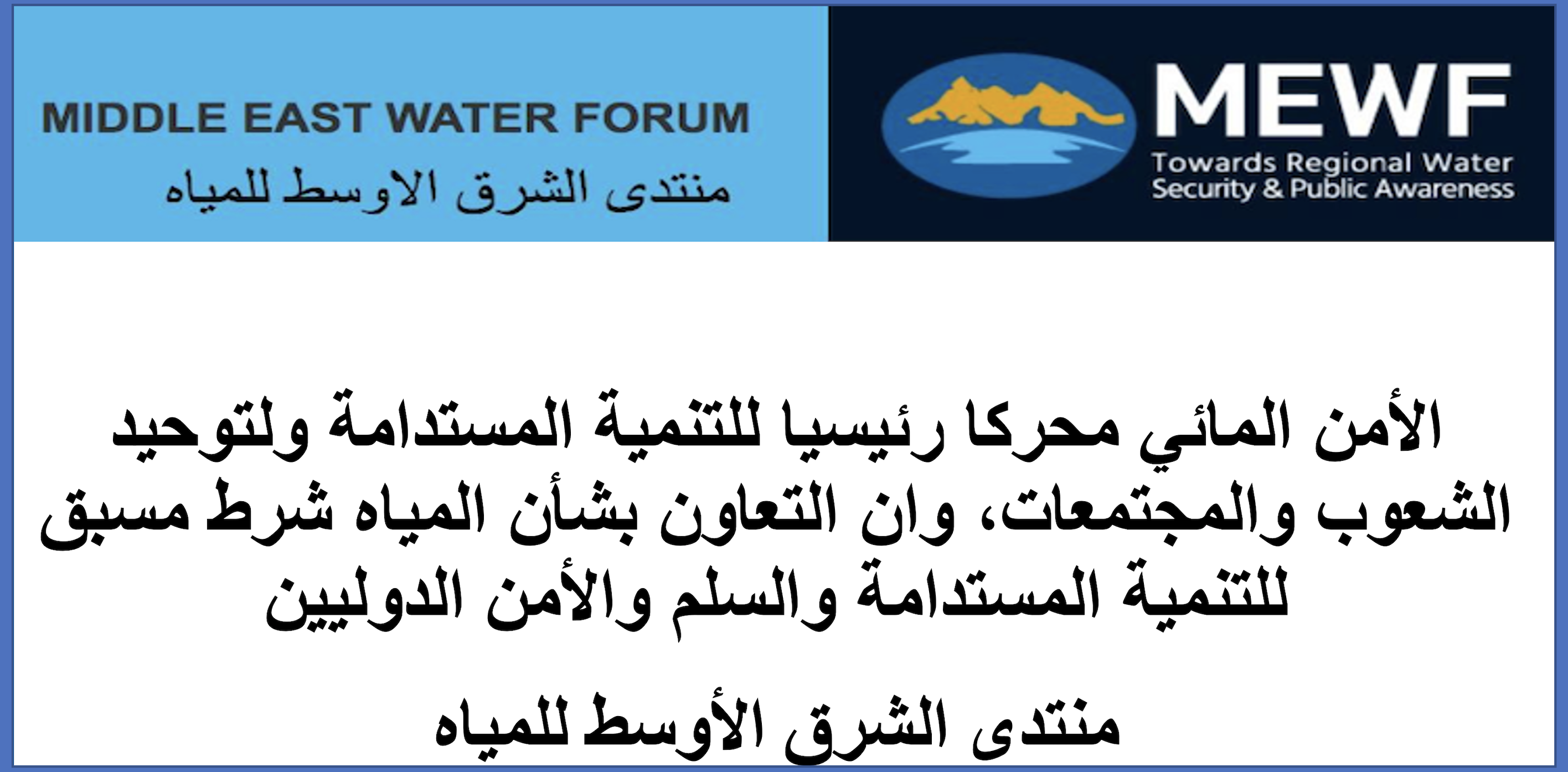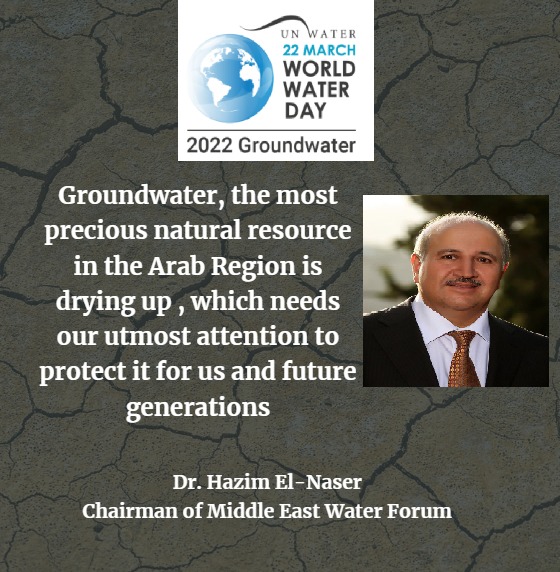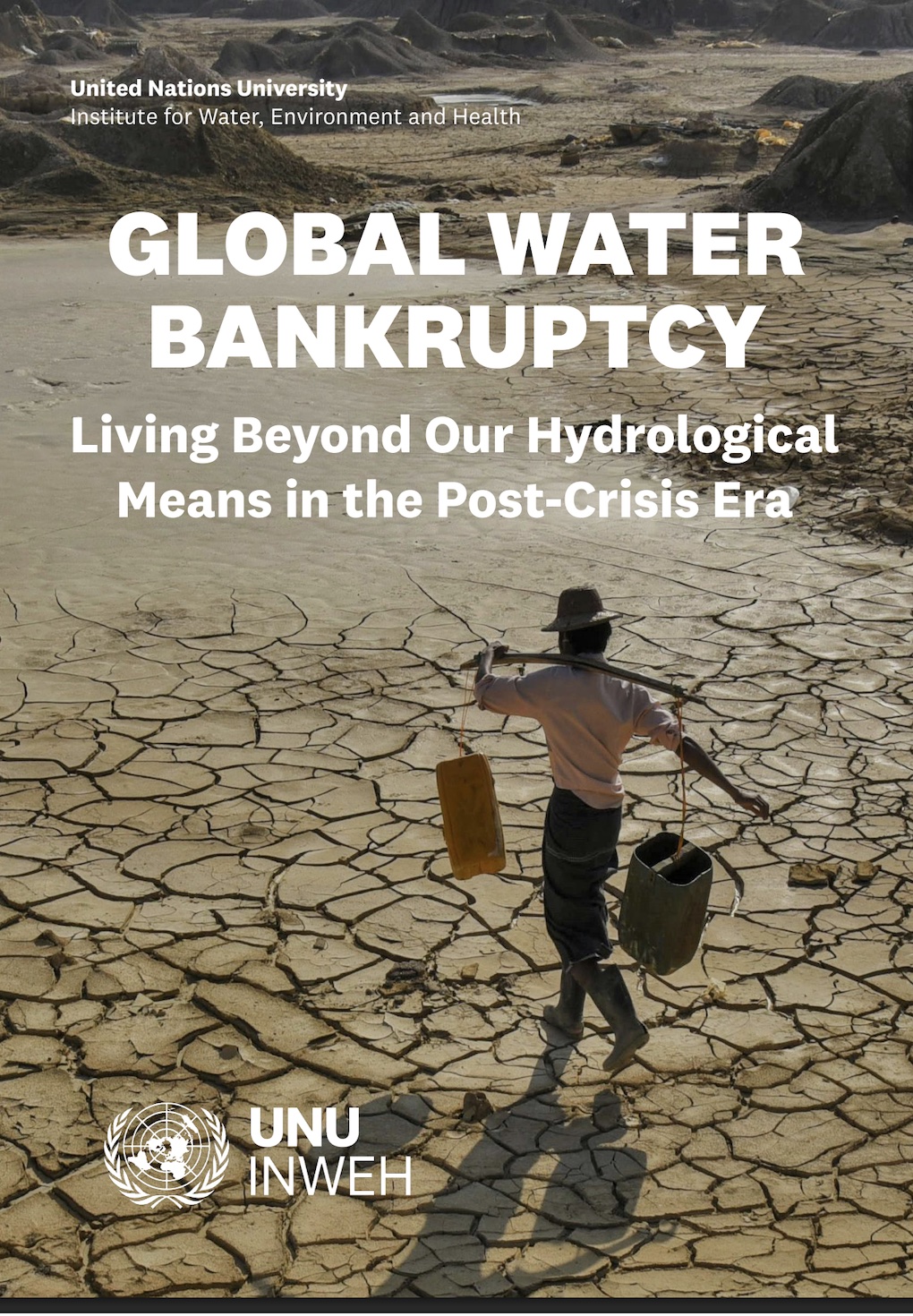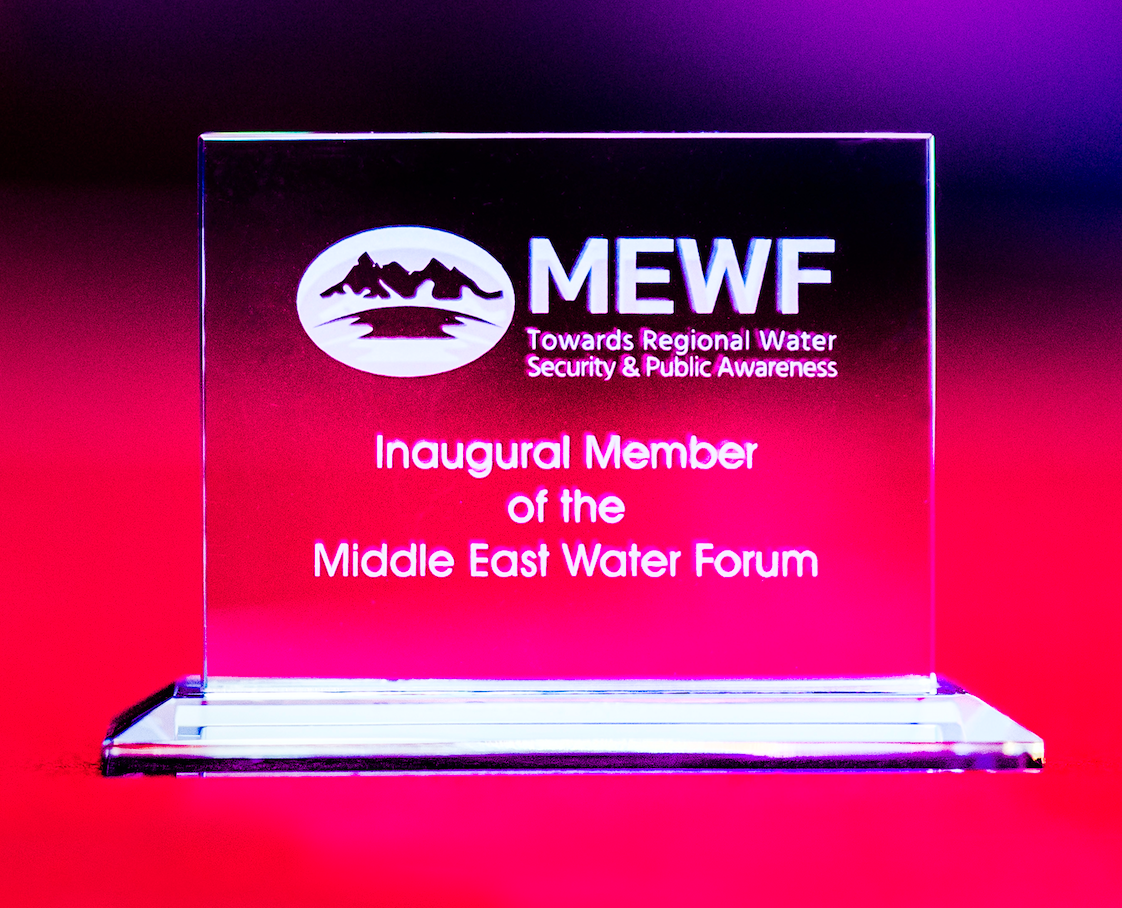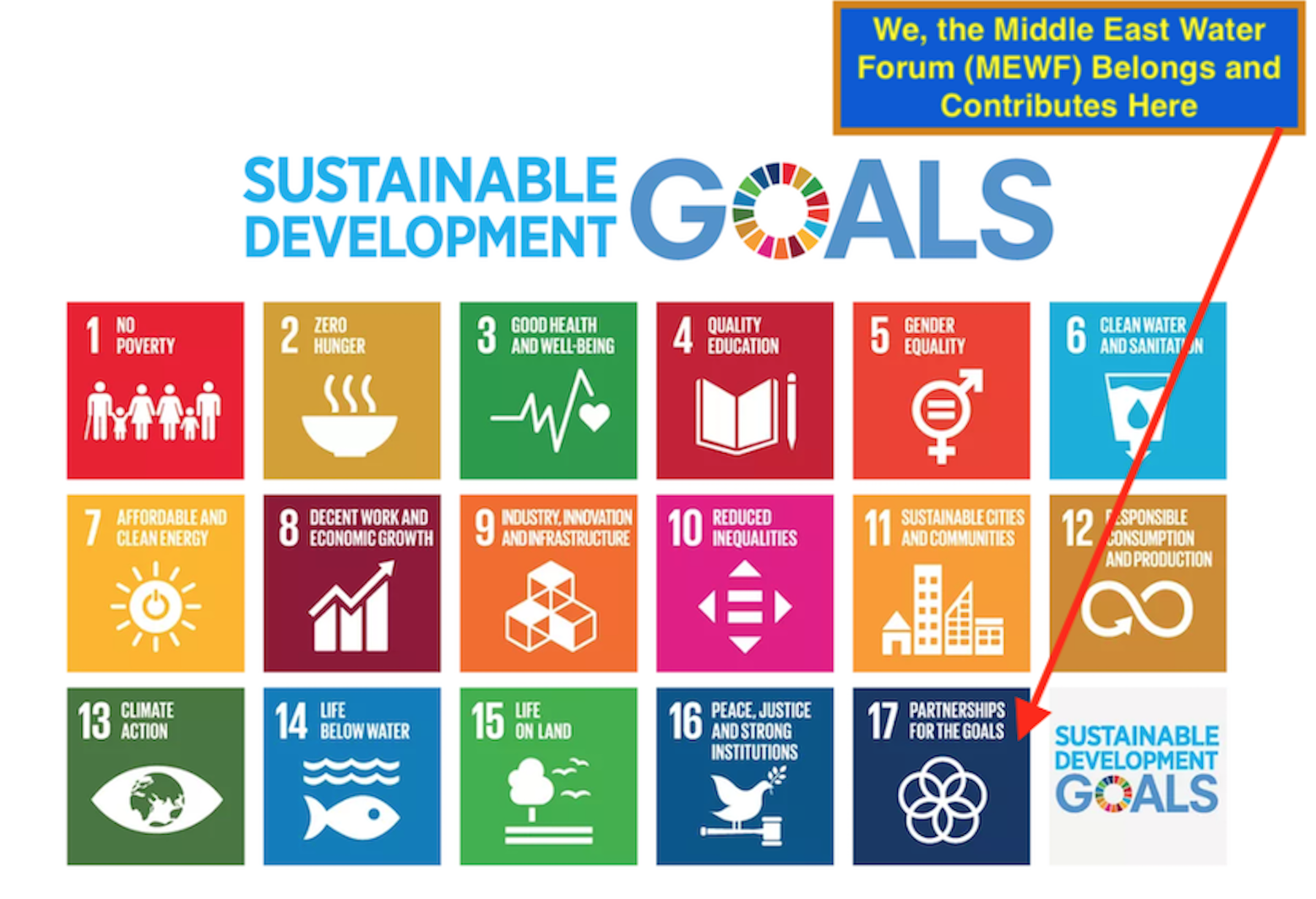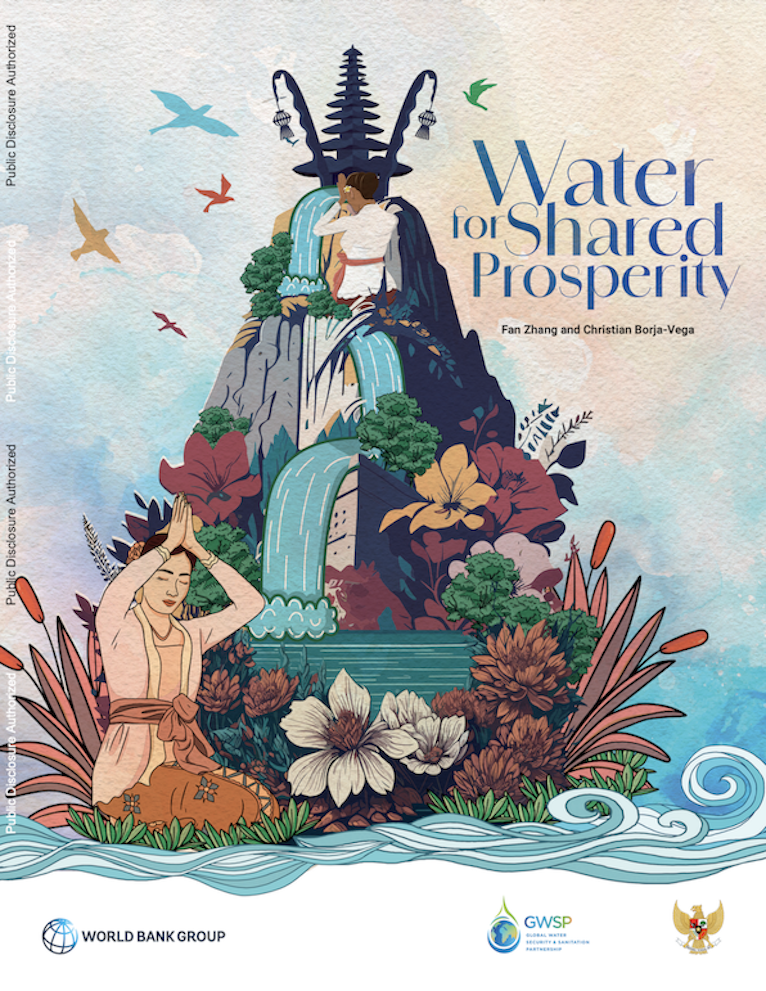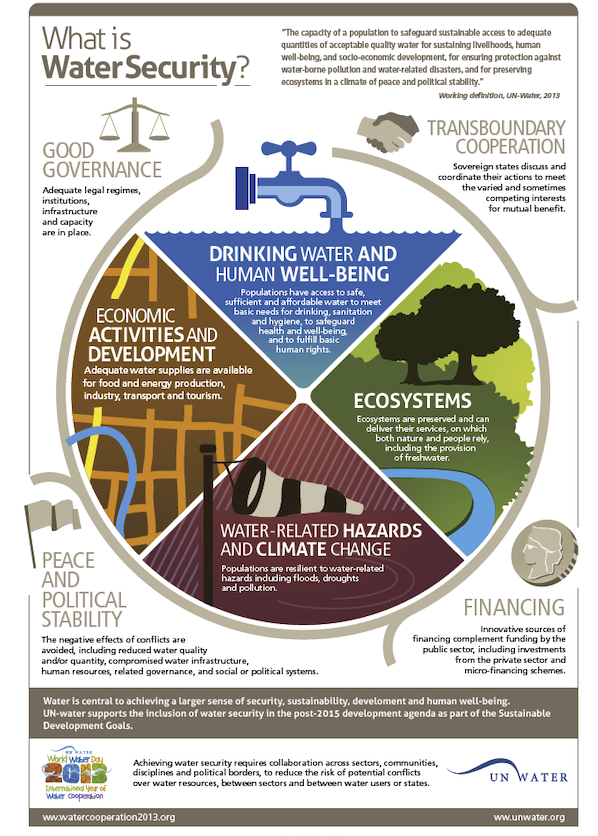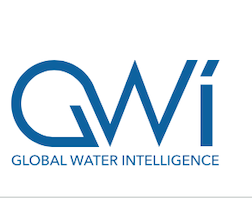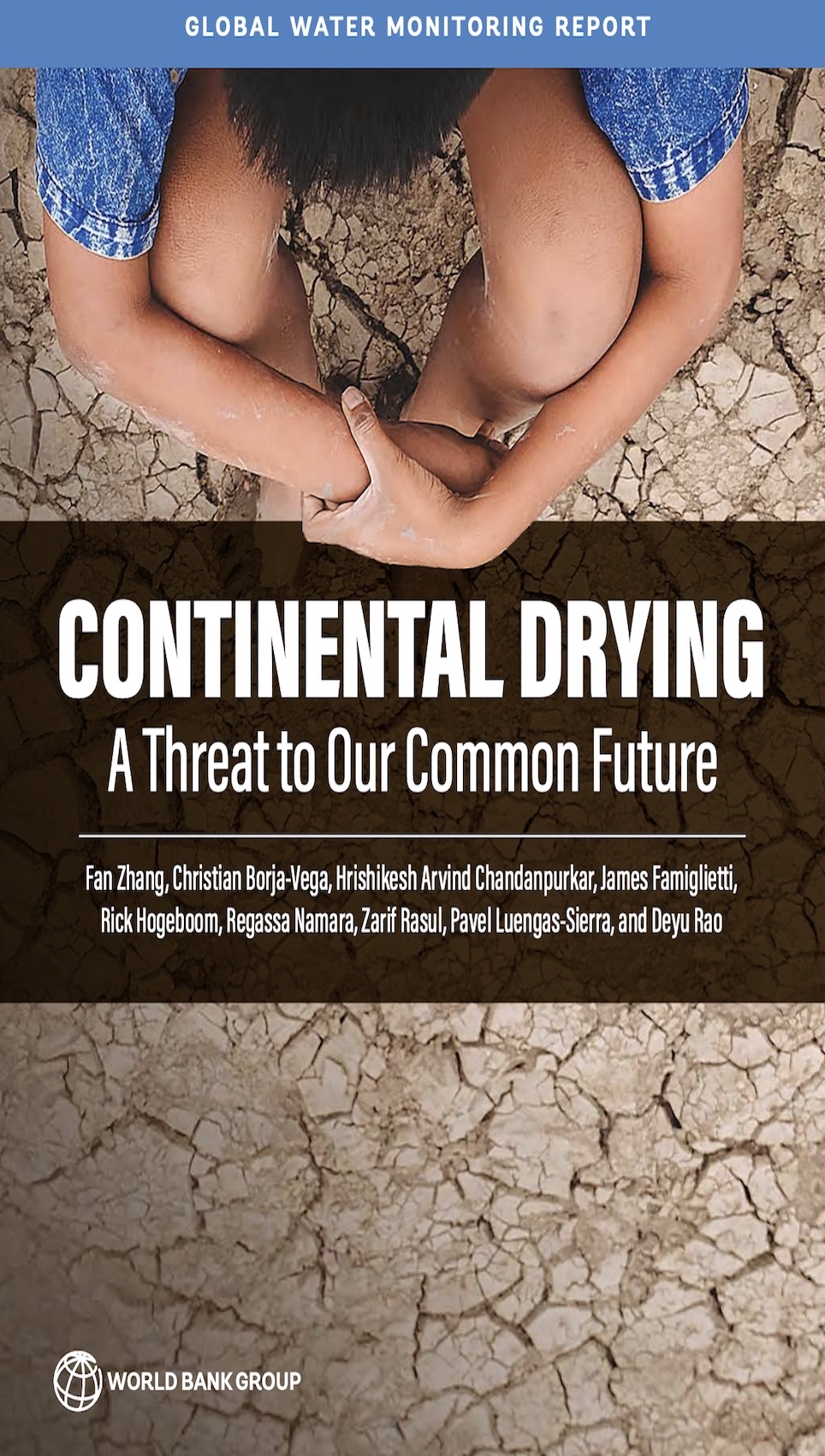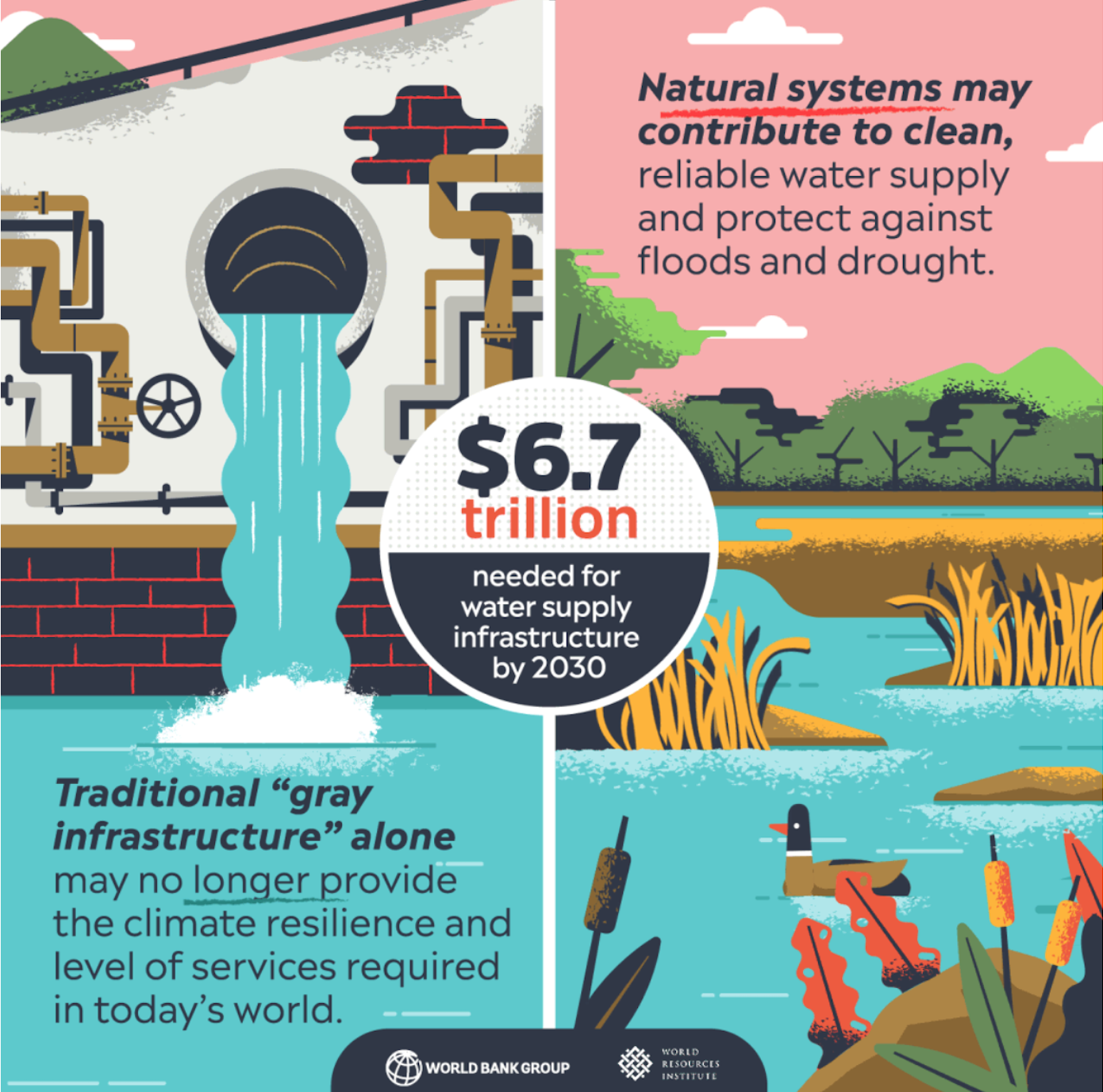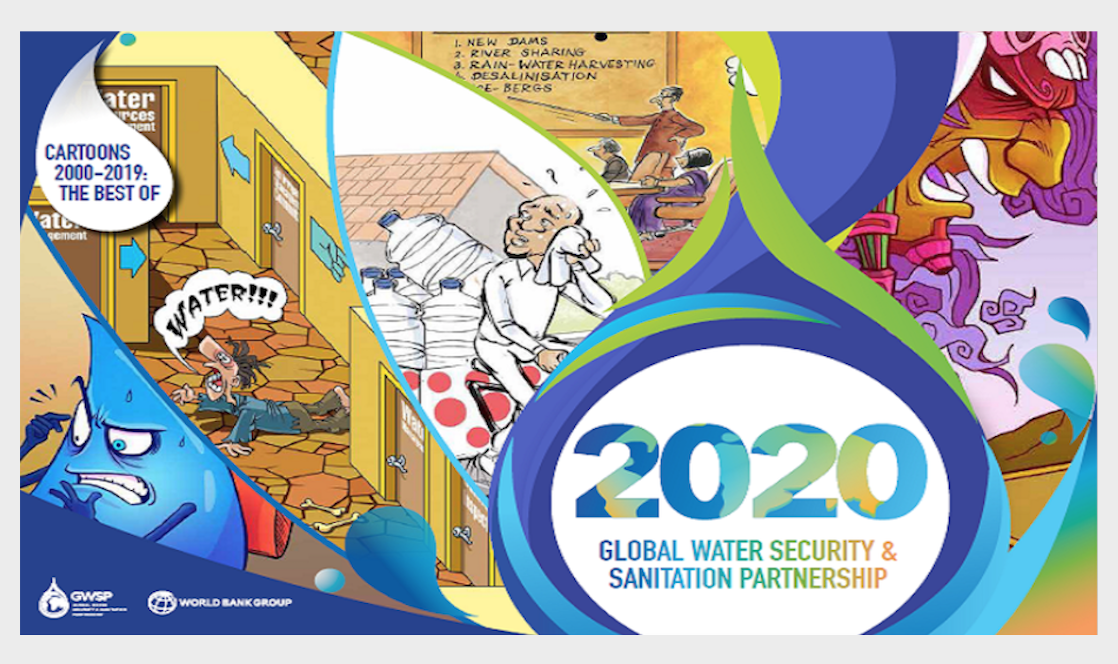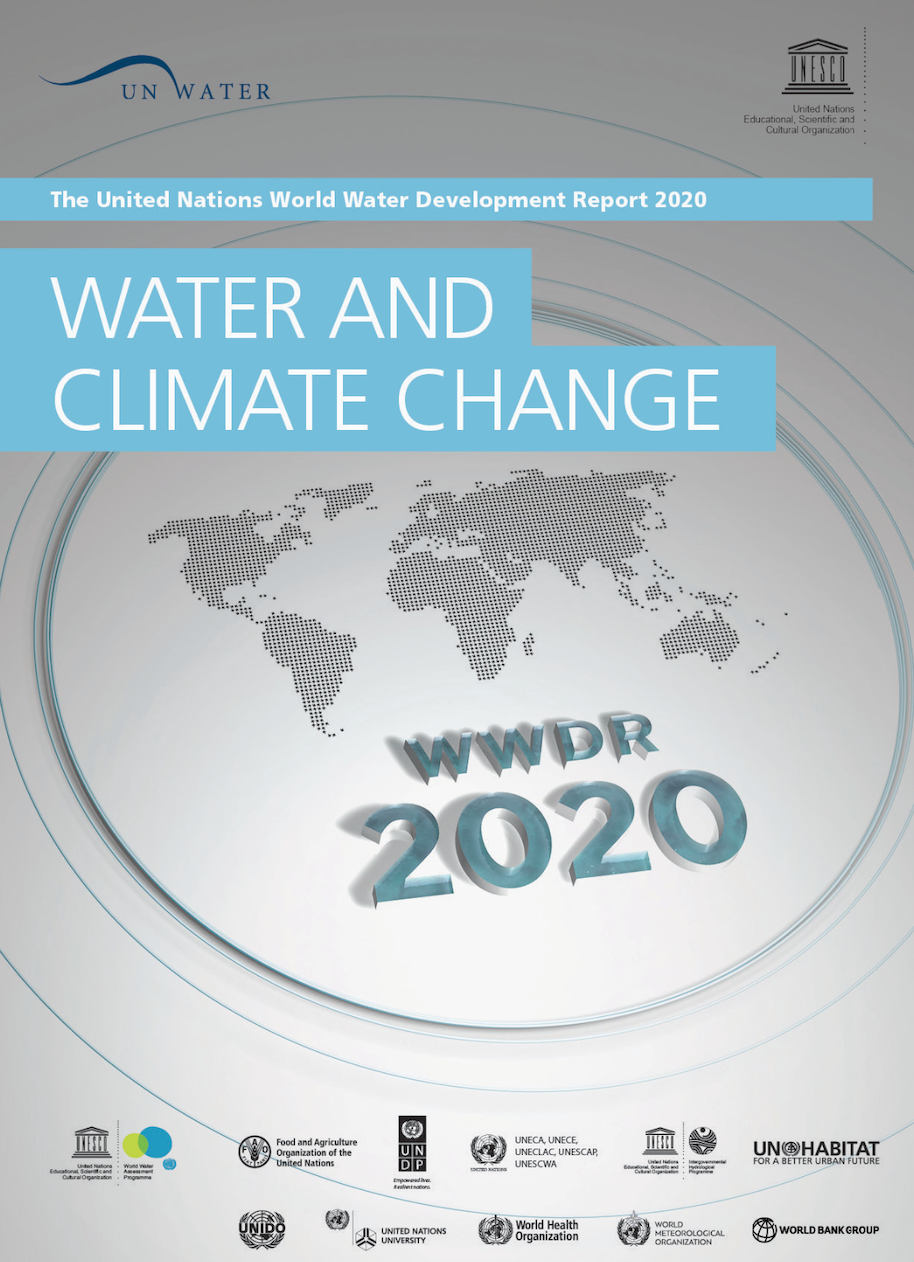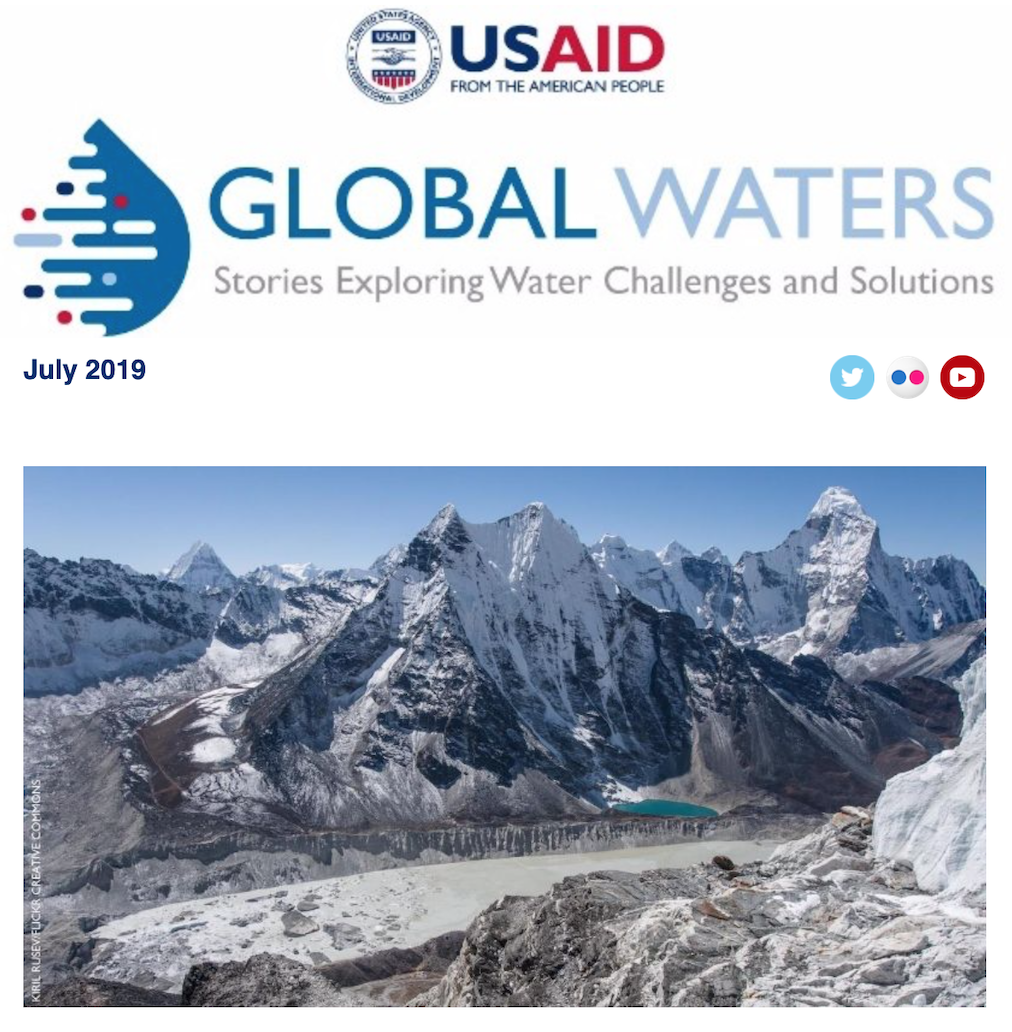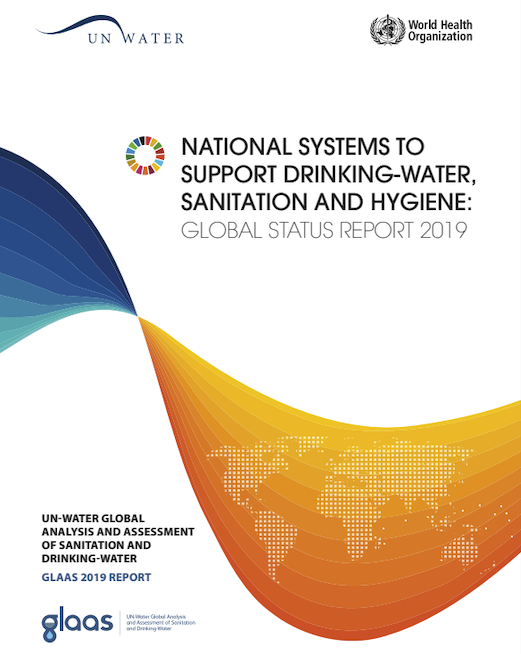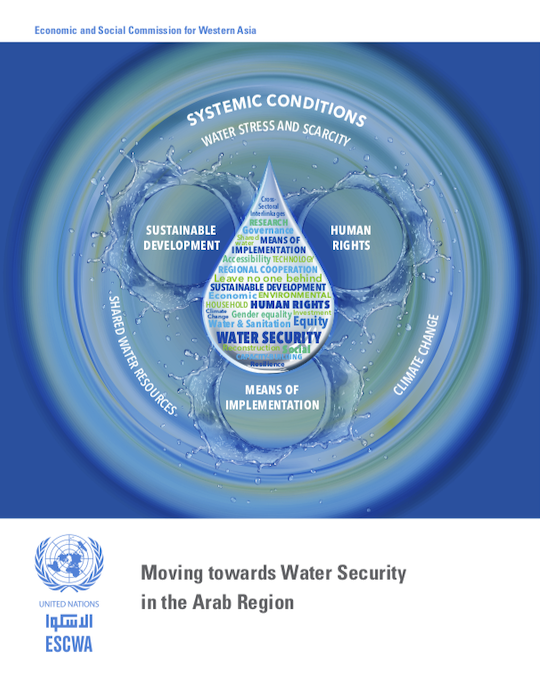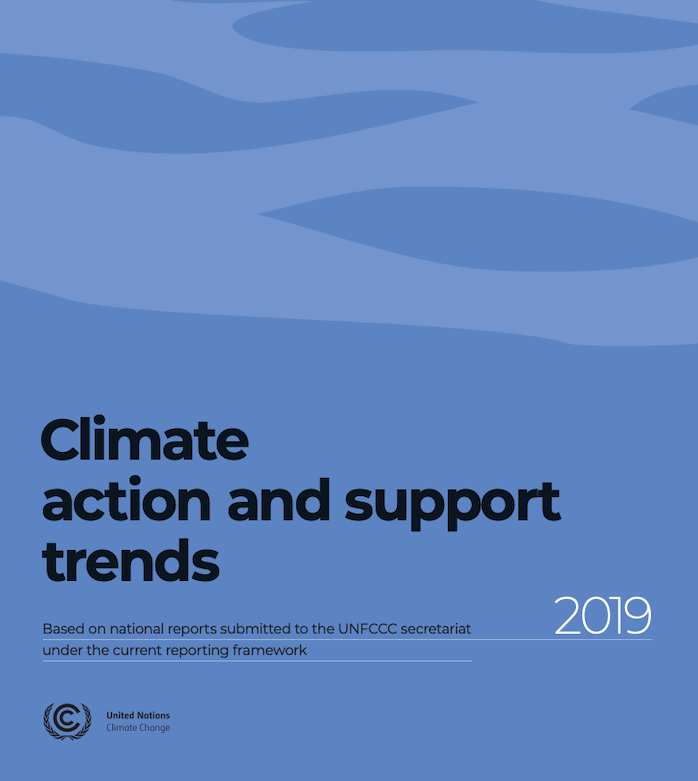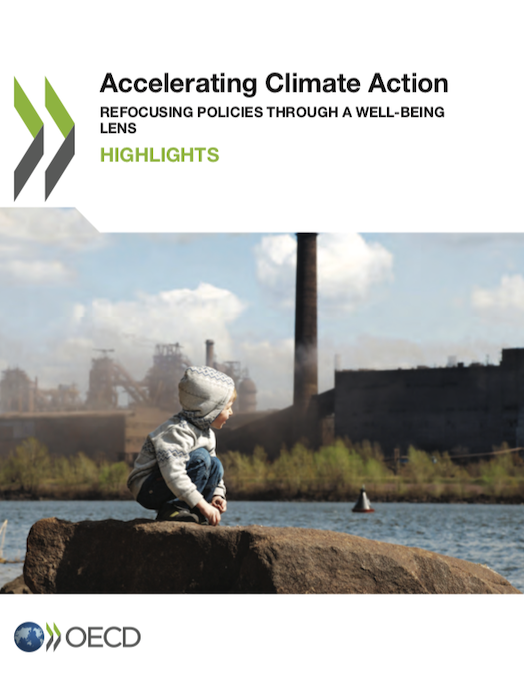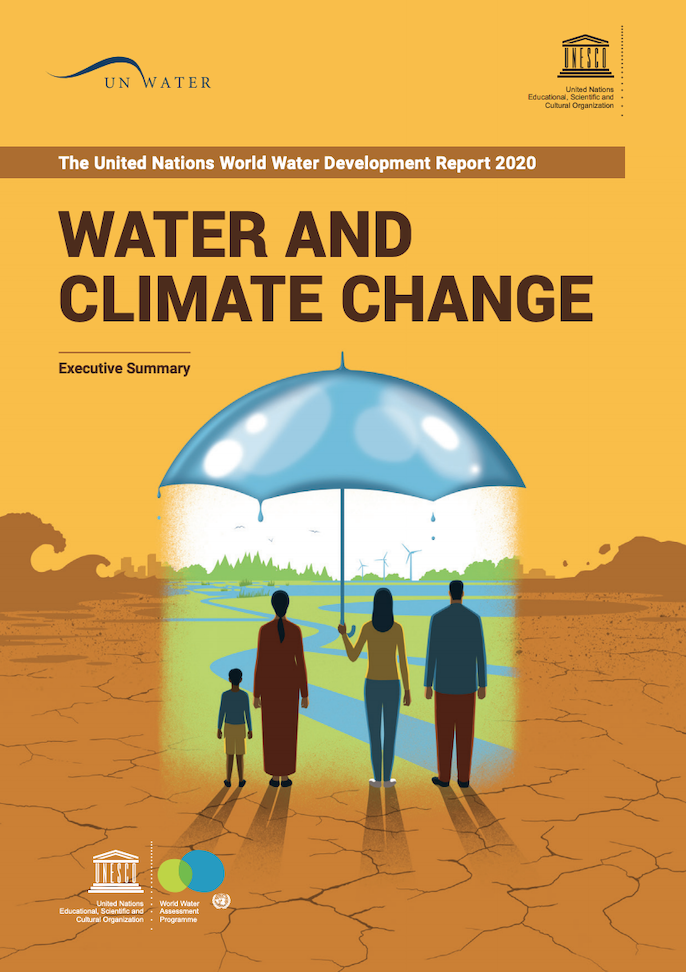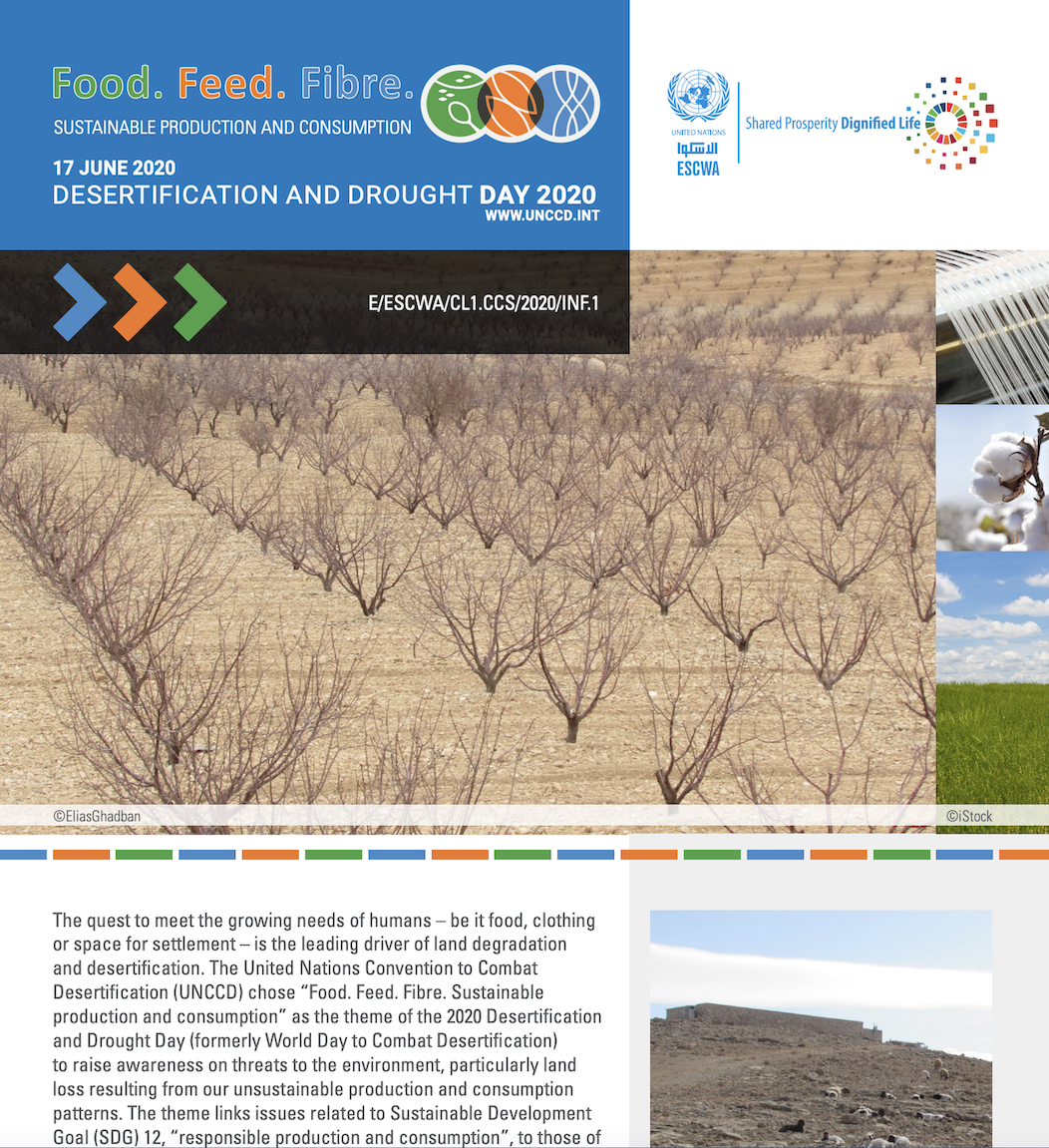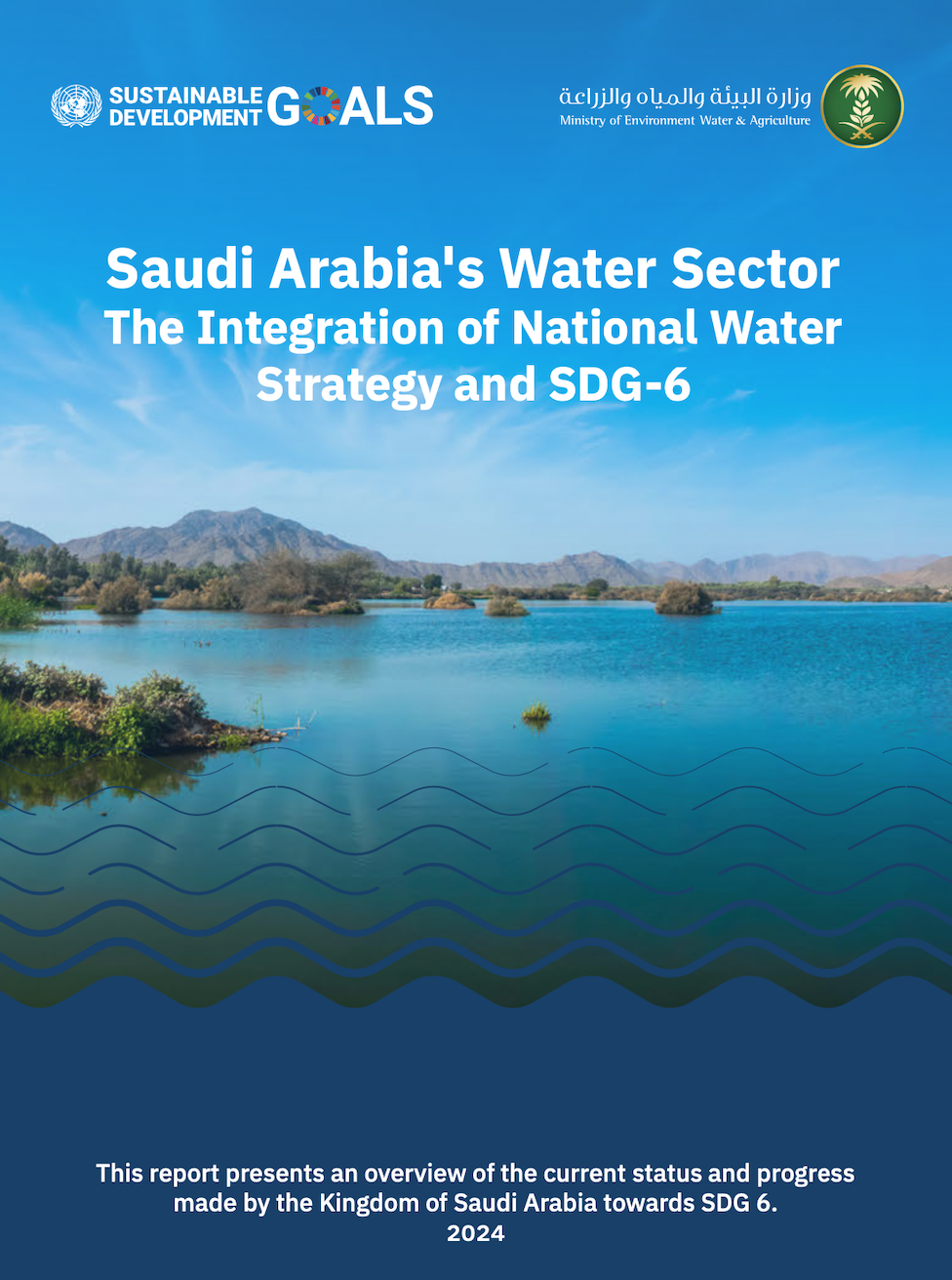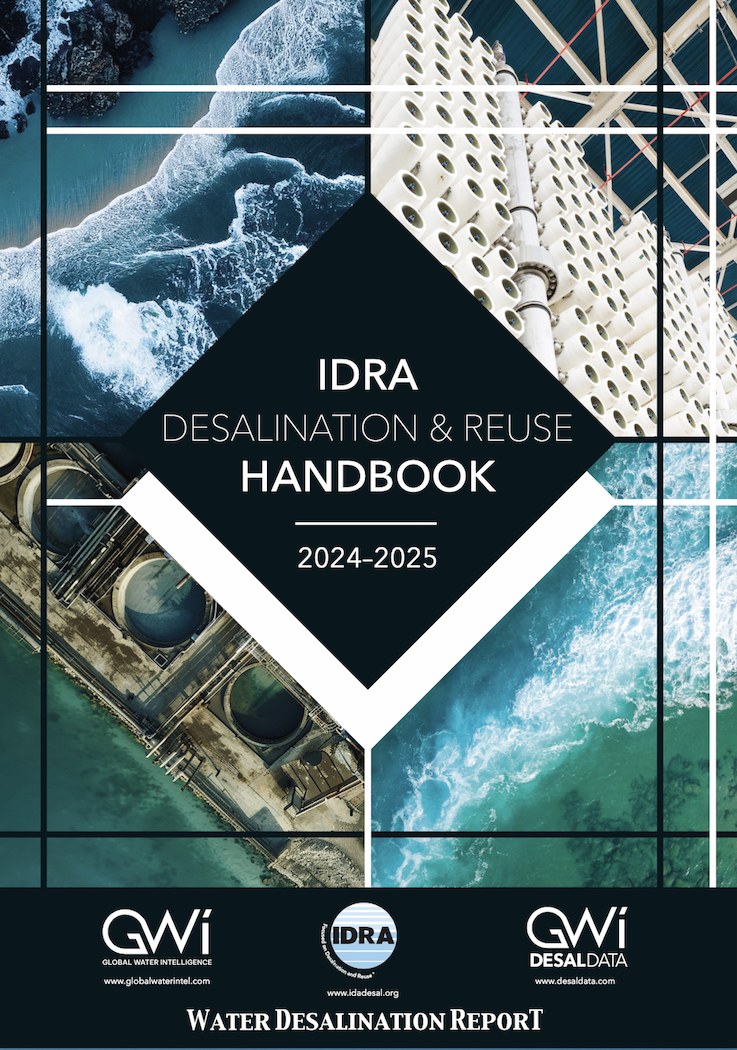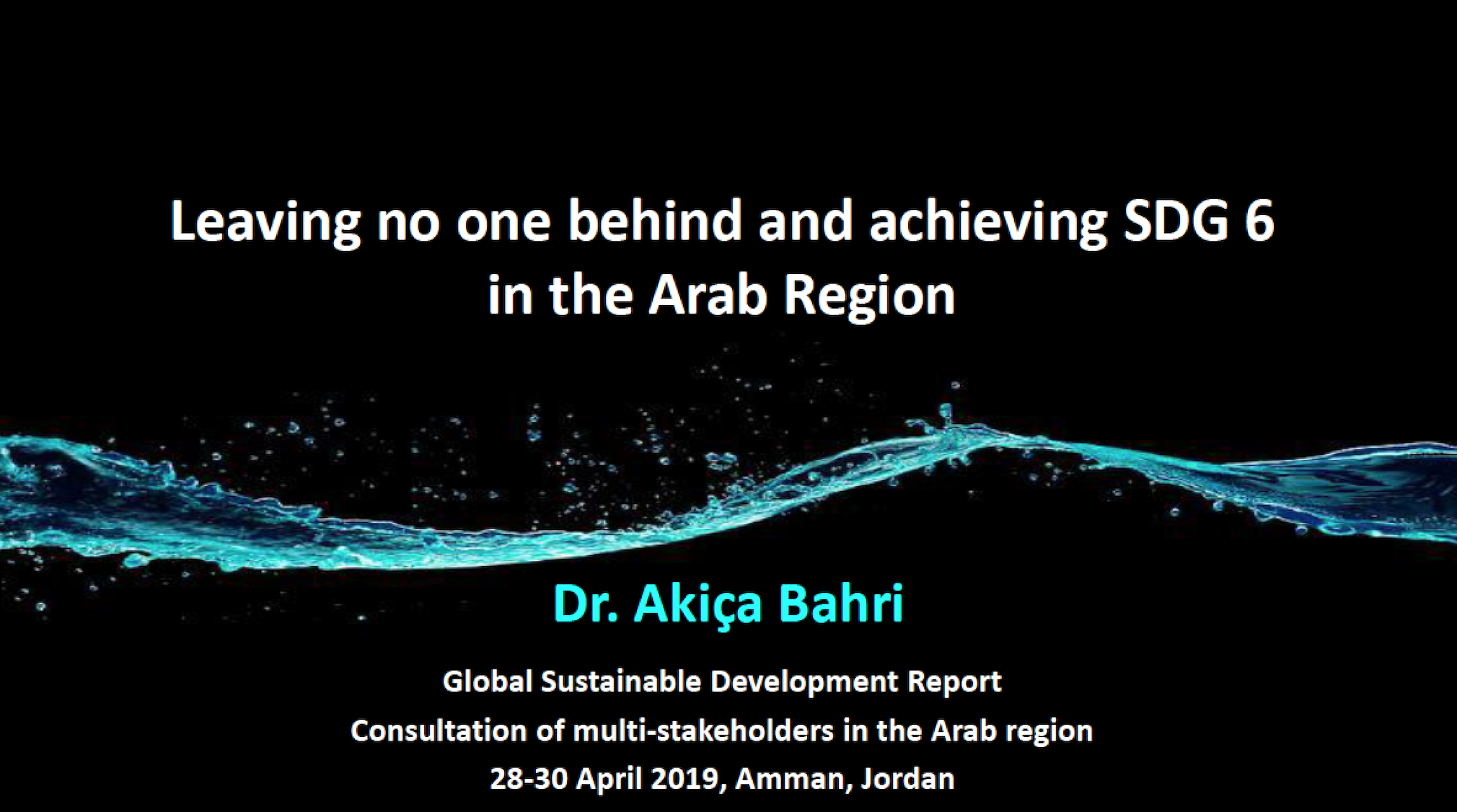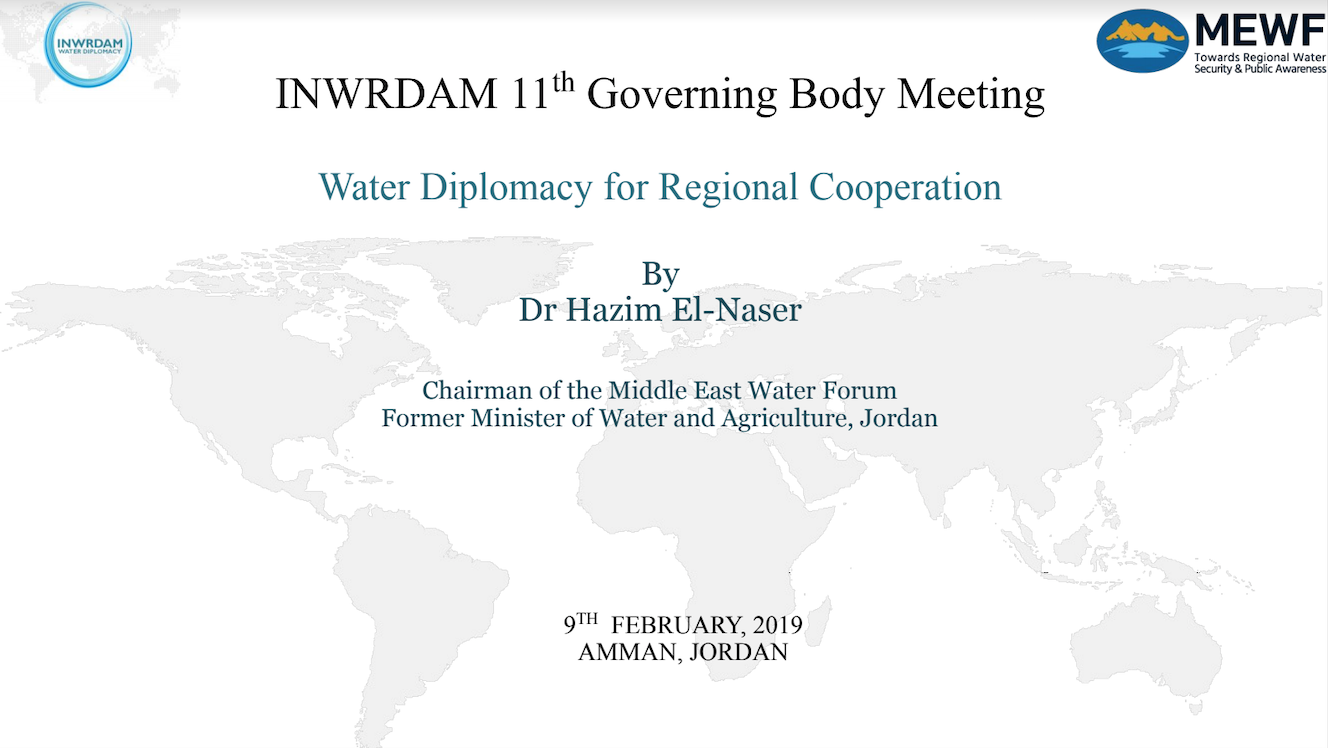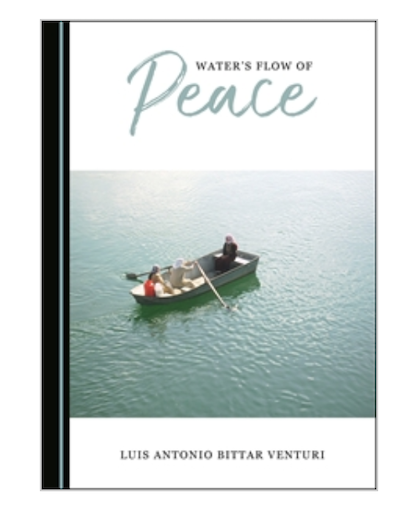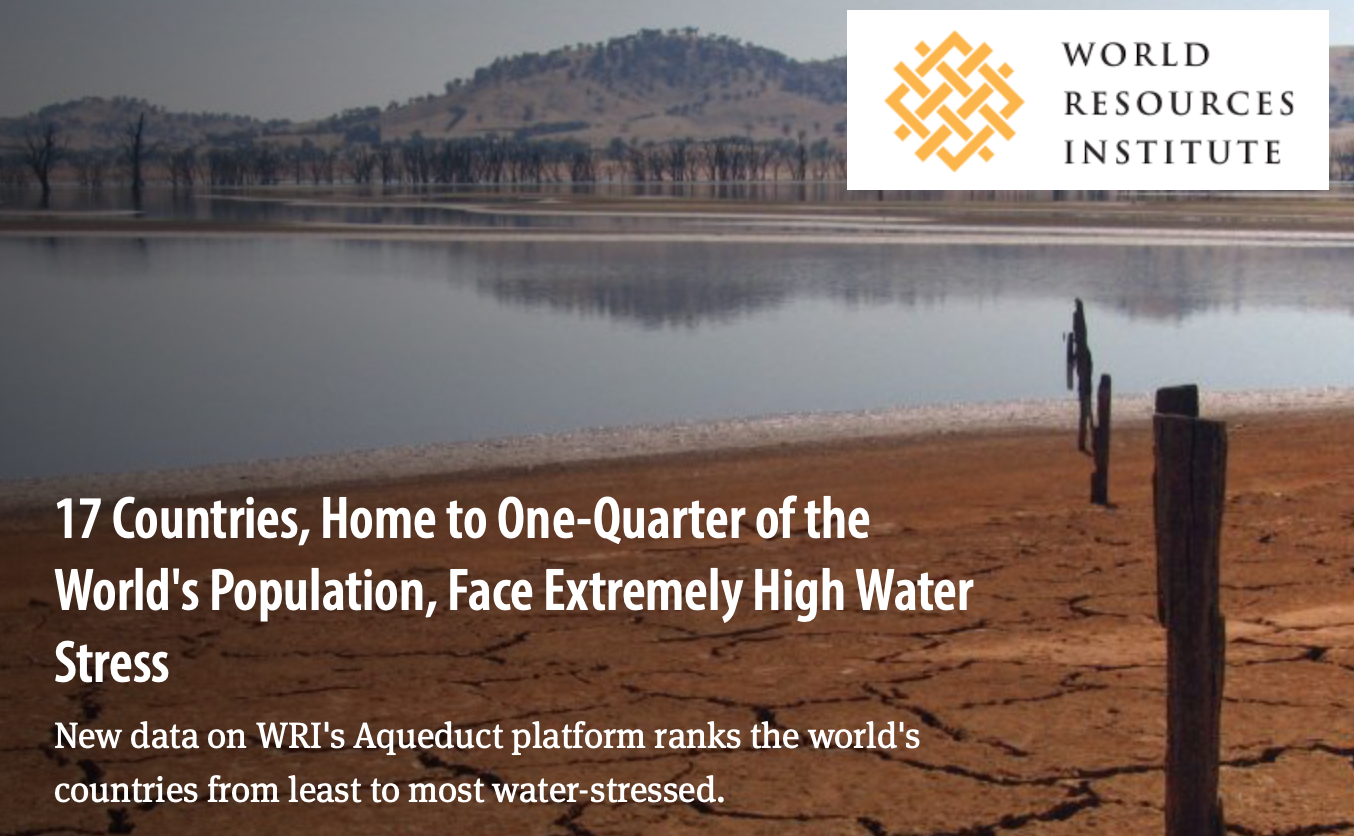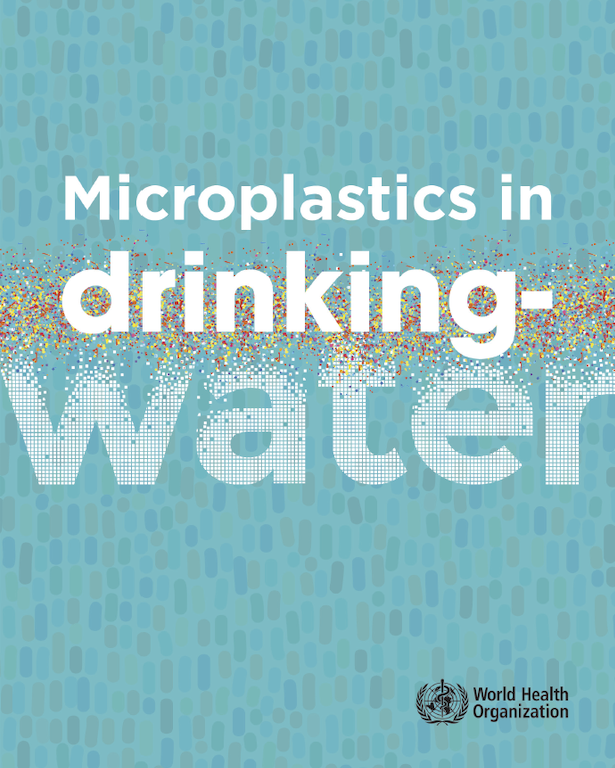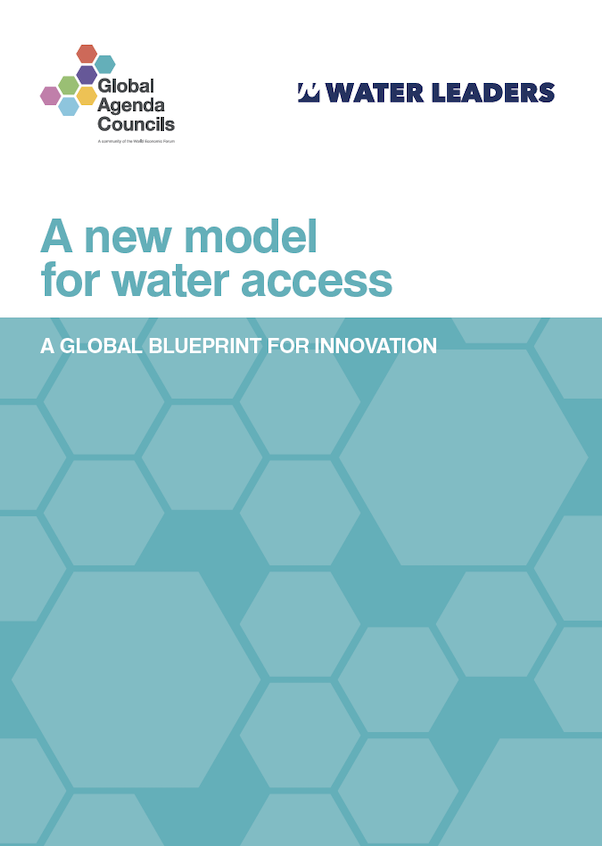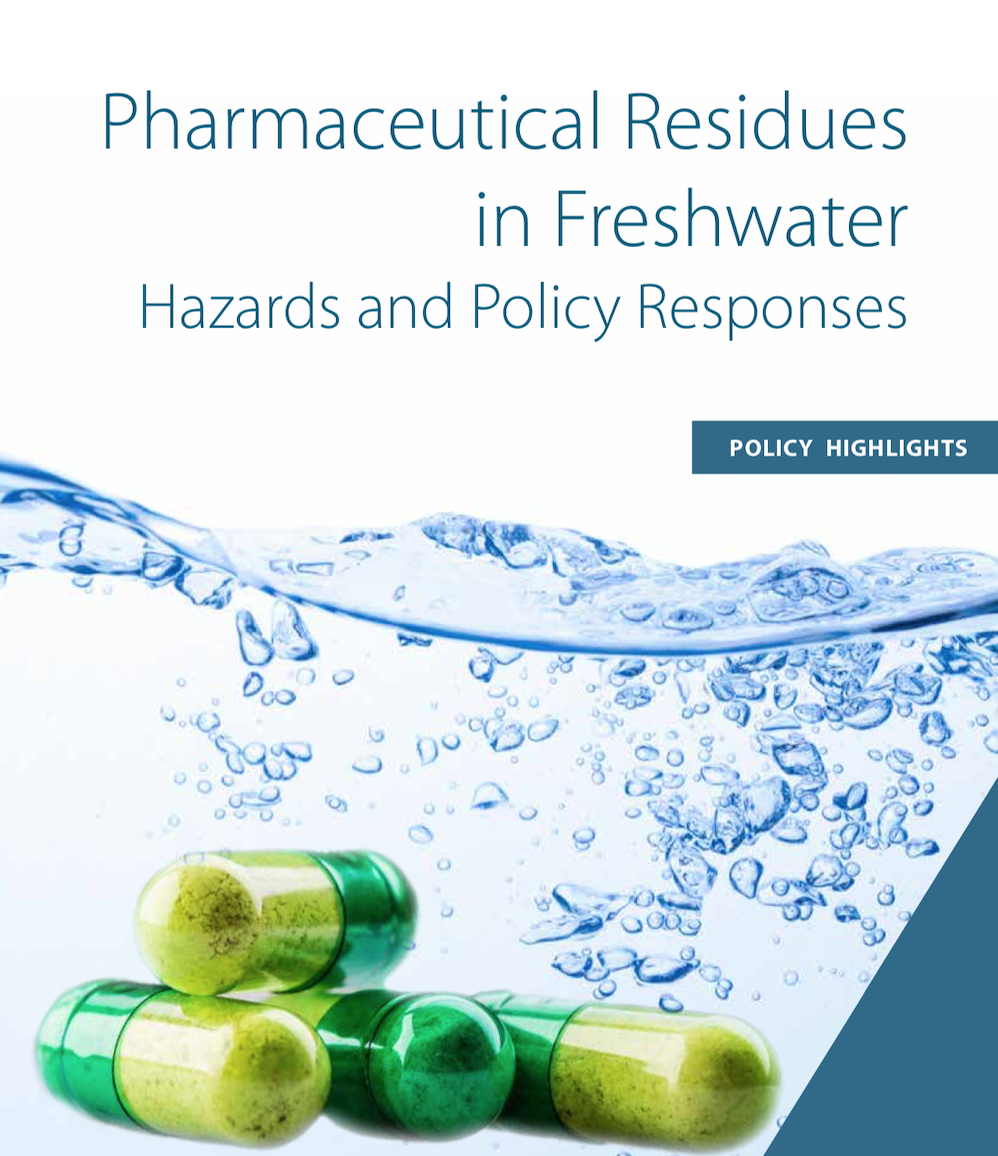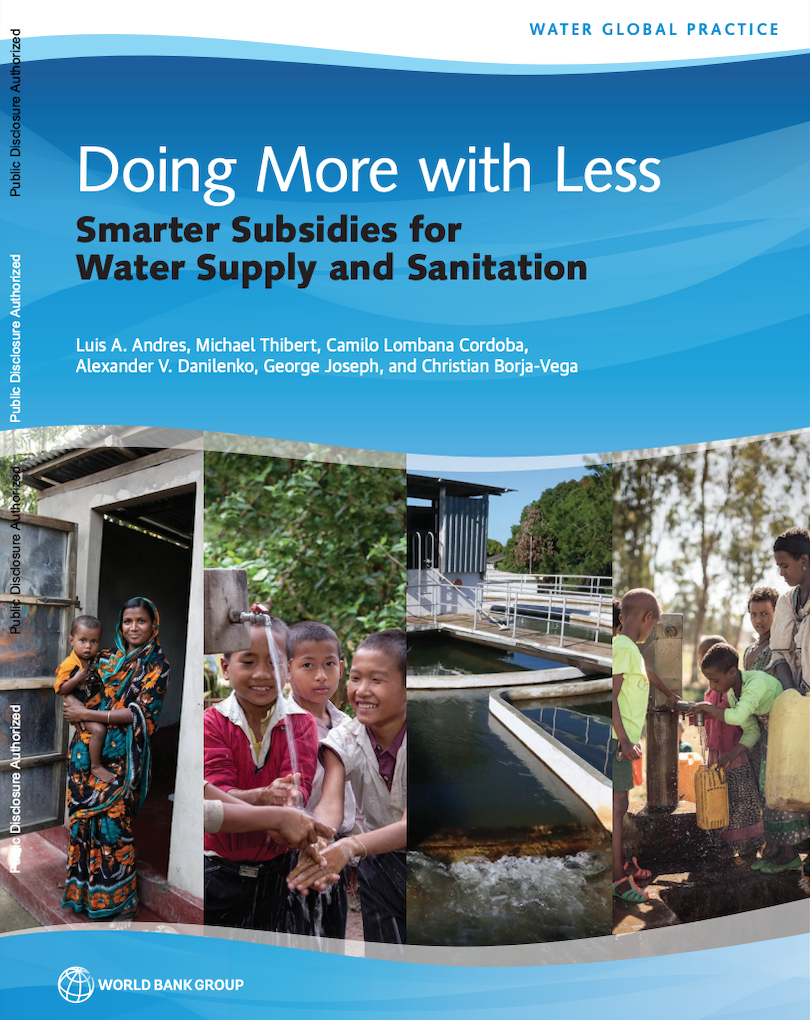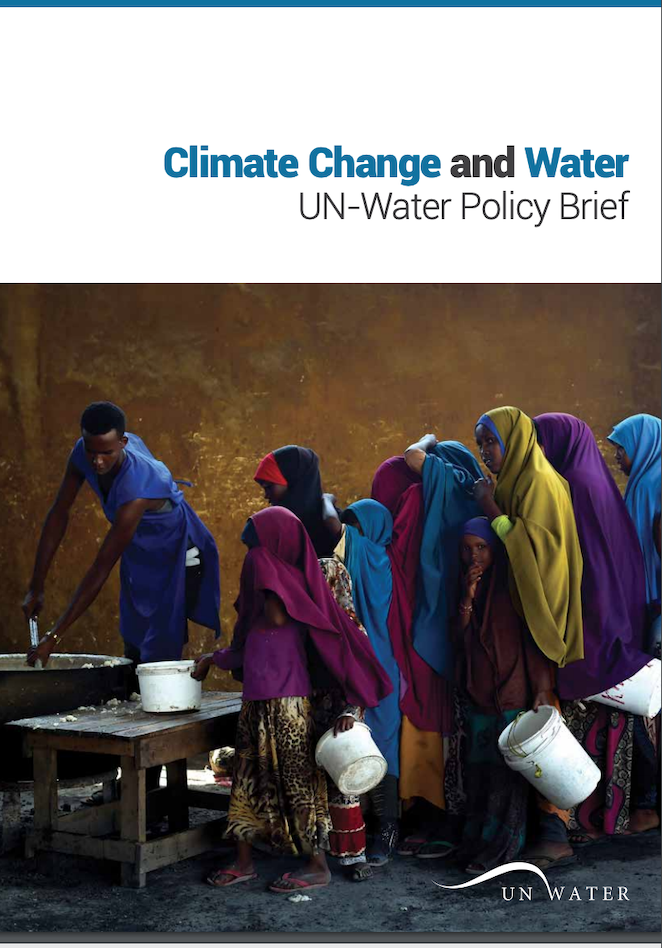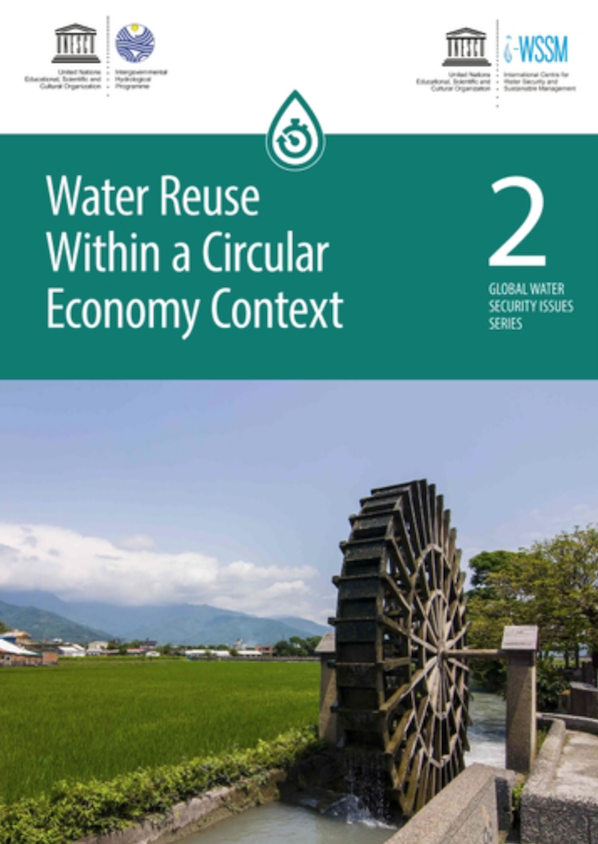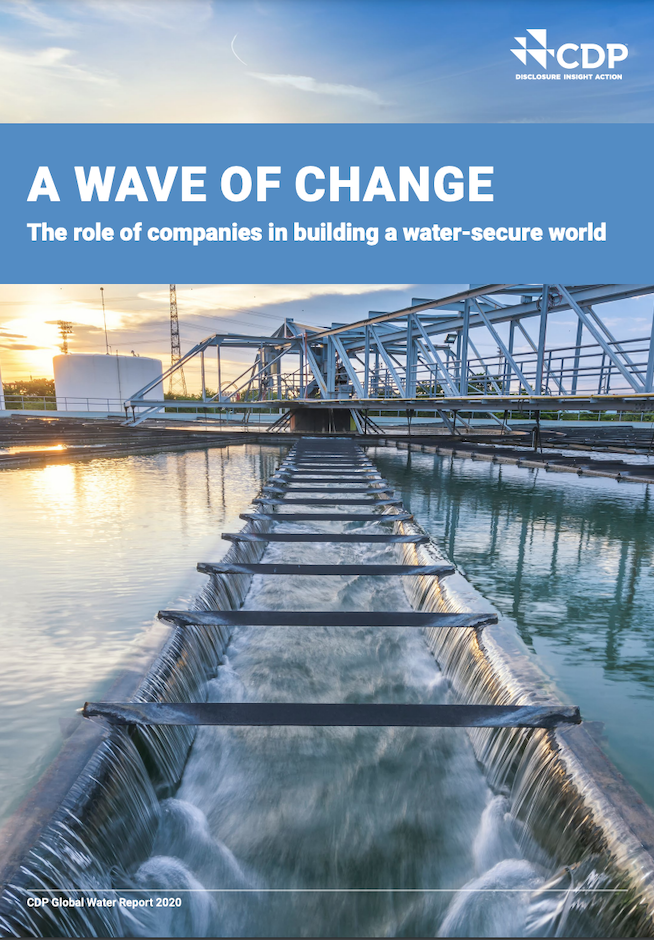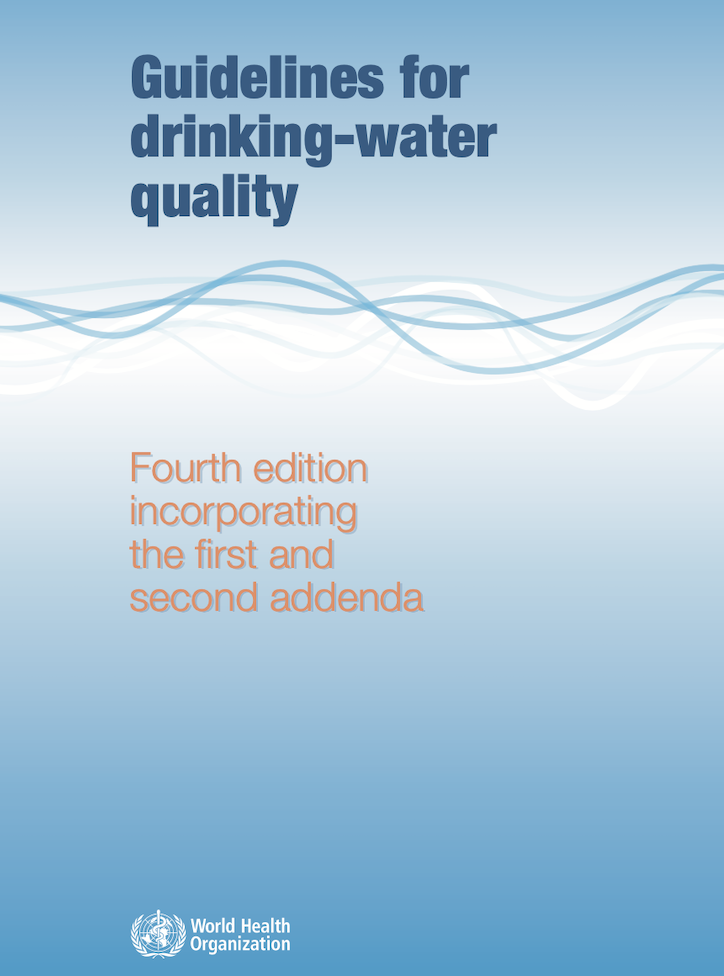
Innovation: A Game-Changing to Drive Water Security in the Arab Region
By: Prof. Jamal Saghir
The Arab World: World’s Driest Region
The Arab countries cover ten percent of the world’s total land area and are home to 6% of the world’s population, nevertheless they receive less than 2% of the world’s renewable water supply. With rapid population growth since the mid 1970s, this has caused dramatic contraction in per capita renewable water resources, from an average of 2,925 cubic meters per year in 1962 to 1,180 in 1992 and further to an alarming 743 in 2011, below the poverty line level of 1,000 cubic meters per year and far below the world average of 7,240 cubic meters per year.
The Arab world is now the world’s driest region, with several countries being among the world’s most water scarce, where per capita renewable water availability is already less than 500 cubic meters per year. These countries are Yemen, Jordan, Algeria, Libya, Tunisia, Bahrain, Kuwait, Qatar, the United Arab Emirates, the, Palestinian Territories, Saudi Arabia, and Oman. This is the level set by the World Health Organization for severe scarcity at which water becomes a hurdle to economic growth and beyond which water scarcity becomes a key concern in people’s lives and begins to affect the development process.
Learn to Do More with Less
Today the Arab World faces the fundamental challenge of trying to do more with less – no matter what. It is not an easy endeavor due to the fragile contexts, ageing infrastructure, lack of information systems, weak institutions, and strained human and financial resources.
It is better to plan for this now than have it happen through reduced growth. Water resource management and development are central to sustainable growth. It is relevant in different and complementary ways. For example, well- conceived water investments and policies would provide the basis for overall country development and associated economic opportunities, as well as create steps towards reform of the power, irrigation, and water supply sectors, with broad benefits from which all citizens can benefit.
Moreover, climate change, bringing with it greater climate variability and more frequent and severe droughts and floods, will exacerbate the already precarious situation created by chronic water scarcity. The Arab world has the greatest expected economic losses from climaterelated water scarcity, estimated by the World Bank at 6–14 percent of GDP by 2050.
The Challenge: Security and Development
The Arab world confronts the triple threats of climate change, rising food and energy costs, and the economic crisis coupled with the current COVID-19 pandemic. All those threats are under fragile contexts of conflict and political instability in many Arab countries, exacerbating poverty, inequality and development.
In fact, more than in any other region in the world, water in the Arab worlds is a security and development issue. Over the last few decades, Arab countries have therefore responded to scarcity and stress by investing in infrastructure. Water supply coverage has increased remarkably. More than three quarters of the population in the Arab countries now have access to clean water and improved sanitation, although service is often not continuous in several countries (Lebanon, Jordan, Yemen). Many countries have completed major investments in water storage infrastructure and have invested heavily in expanding irrigation systems, such as in Morocco and Egypt.
The dominant threats to water security vary geographically and over time. What is clear is that water security is not a stagnant goal, it is a dynamic process affected by changing climate, political set up, growing economies, and resource degradation. Moreover, as social, cultural, political, economic priorities and values evolve, water security will evolve with them. Important questions also remain to be addressed in relation to defining development priorities and appropriate levels and mixes of investment in water resources for program design, project economic analysis, and the potentials and constraints for the countries to “leapfrog” their water institutions and infrastructure.
Innovation: Game- Changing
Solutions to the growing problem of water scarcity in the region are within reach. The challenge is to accelerate and leapfrog the development and spread of innovation for sustainable water management.Innovative monitoring technologies (such as remotely controlled pumps and smart water meters) could help address some of the challenges. Moreover, as is already happening in Jordan and other countries, use of remote sensing techniques help governments control the expansion of groundwater-based irrigation. Solar-powered irrigation schemes in Morocco and Egypt, taking advantage of lower costs for solar technology and the region’s high solar radiation is replacing expensive and polluting diesel pumps.
Some of the other technological innovations, include Low Temperature Distillation which utilises waste heat or solar energy in desalination and other processes. This method reduces the carbon footprint of desalination plants as it also reduces operating costs.
Many technologies are also available to treat and reuse wastewater - 80% of which is not being recycled in the region, compared to just 30% in high-income countries - for productive purposes, including forestry, agriculture, landscaping, and aquifer recharge.
The capture and use of these innovative options have so far been slow in the Arab region because of institutional and policy divisions, and stringent regulations.
Conclusion
Innovation in water technology - from water supply (such as desalination and solar pumping) to industrial efficiency (such as more efficient water reuse) to agricultural technologies (such as crop protection and irrigation controls) - show huge potential for achieving water security.
The Arab region needs to invest more in technologies to address issues of water security, including automation, digital solutions and artificial Intelligence which can contribute to more efficiency in the water sector and should be used more intensively in the region. However, one of the serious challenges facing introduction of new water technologies in the region in general, is how to ensure proper maintenance of projects with high technology after project completion. In my opinion, what is needed is to:
- Diagnose the technology adaptation status in the Arab World including barriers and opportunities for improved investments and the design of bankable projects in the sector; and
- Build on good examples and innovative solutions while analyzing their potential for transferability and scalability.
 mourad-almbrok
mourad-almbrok

